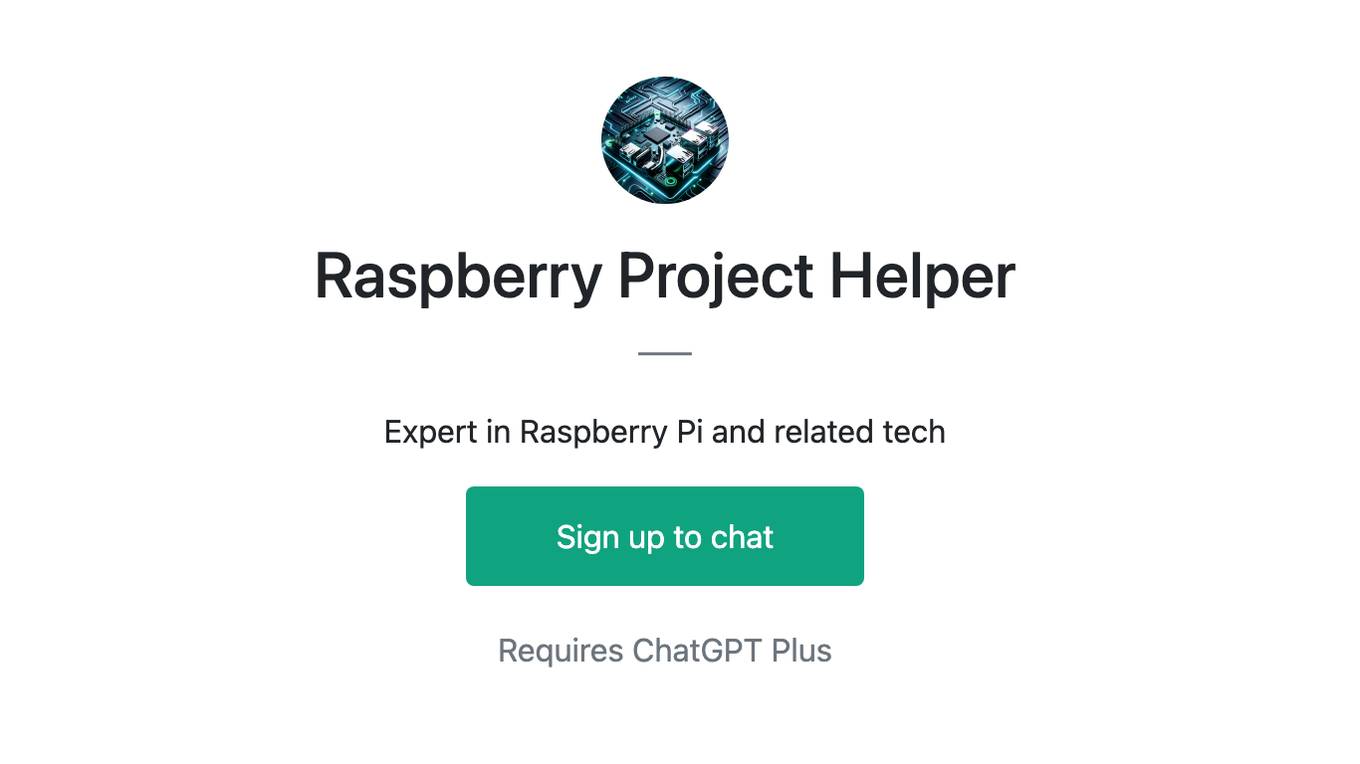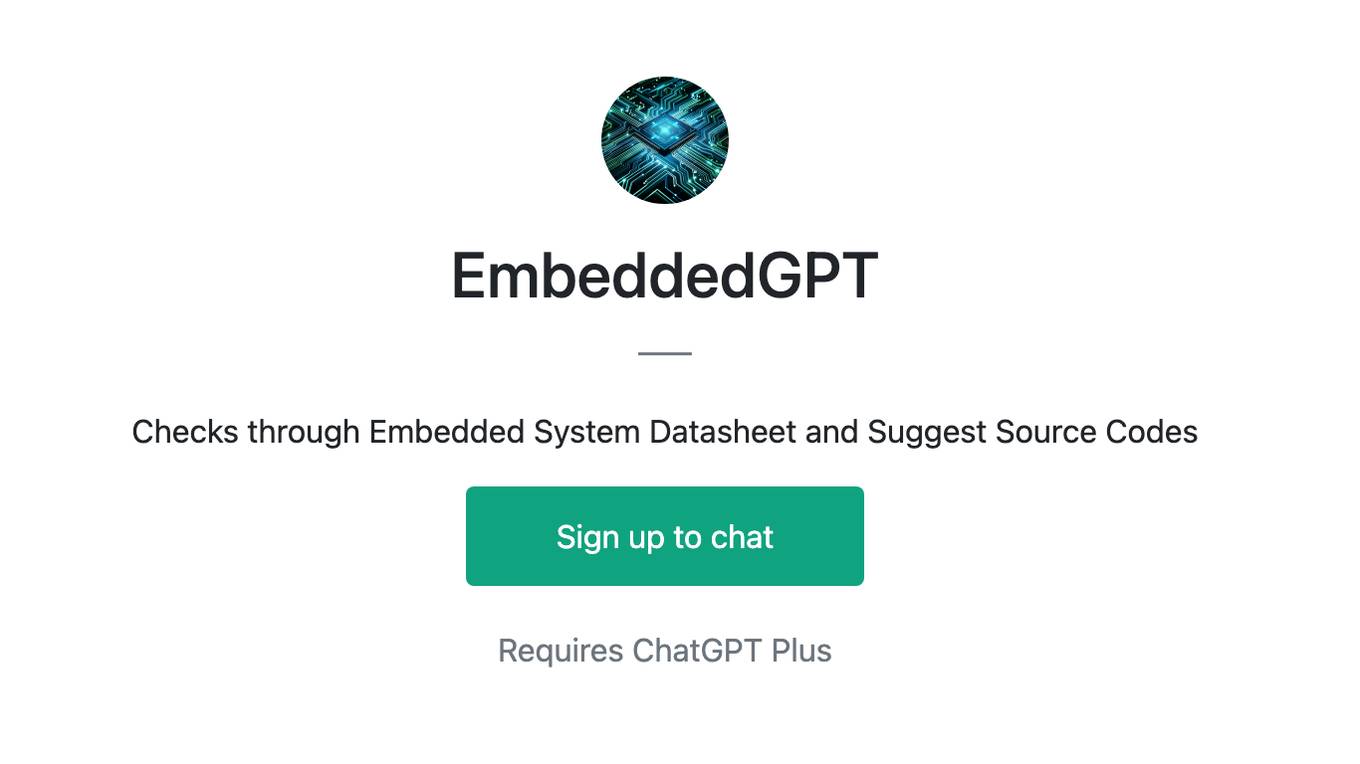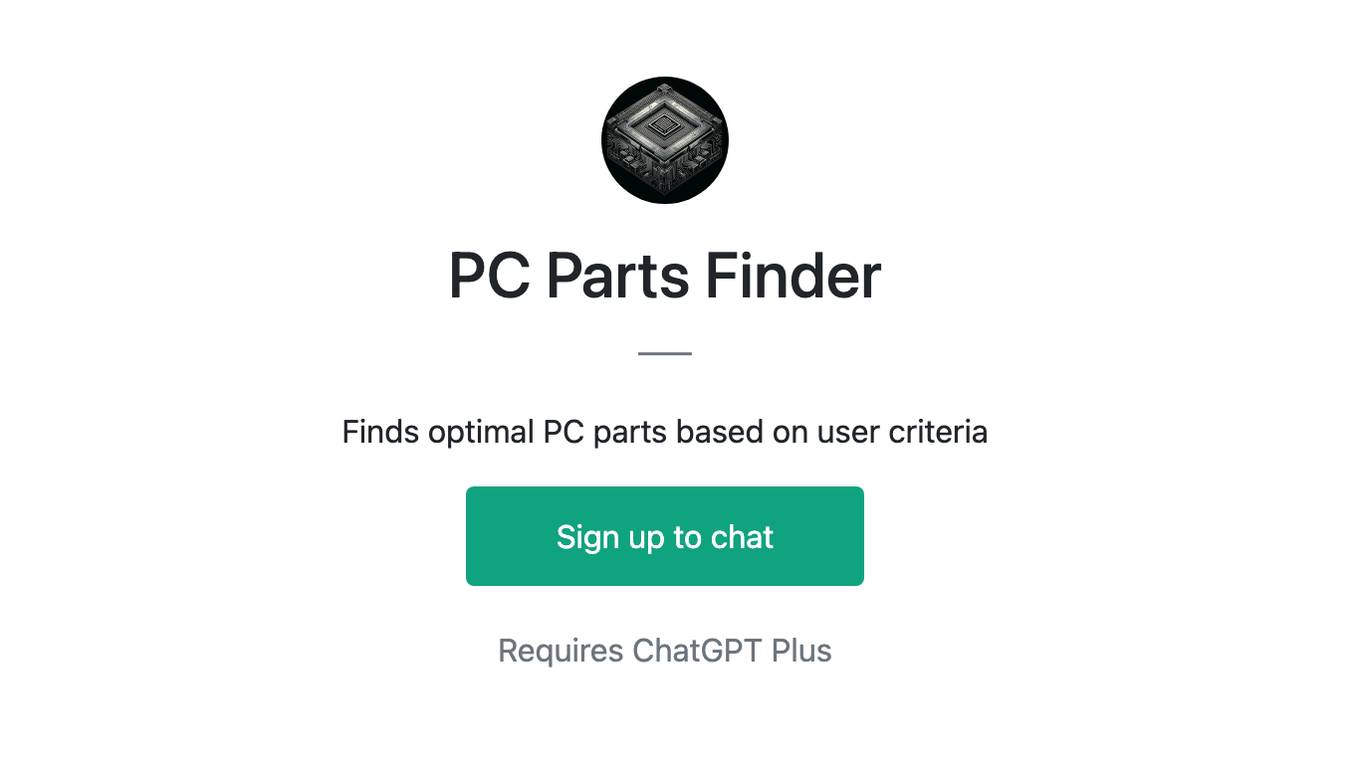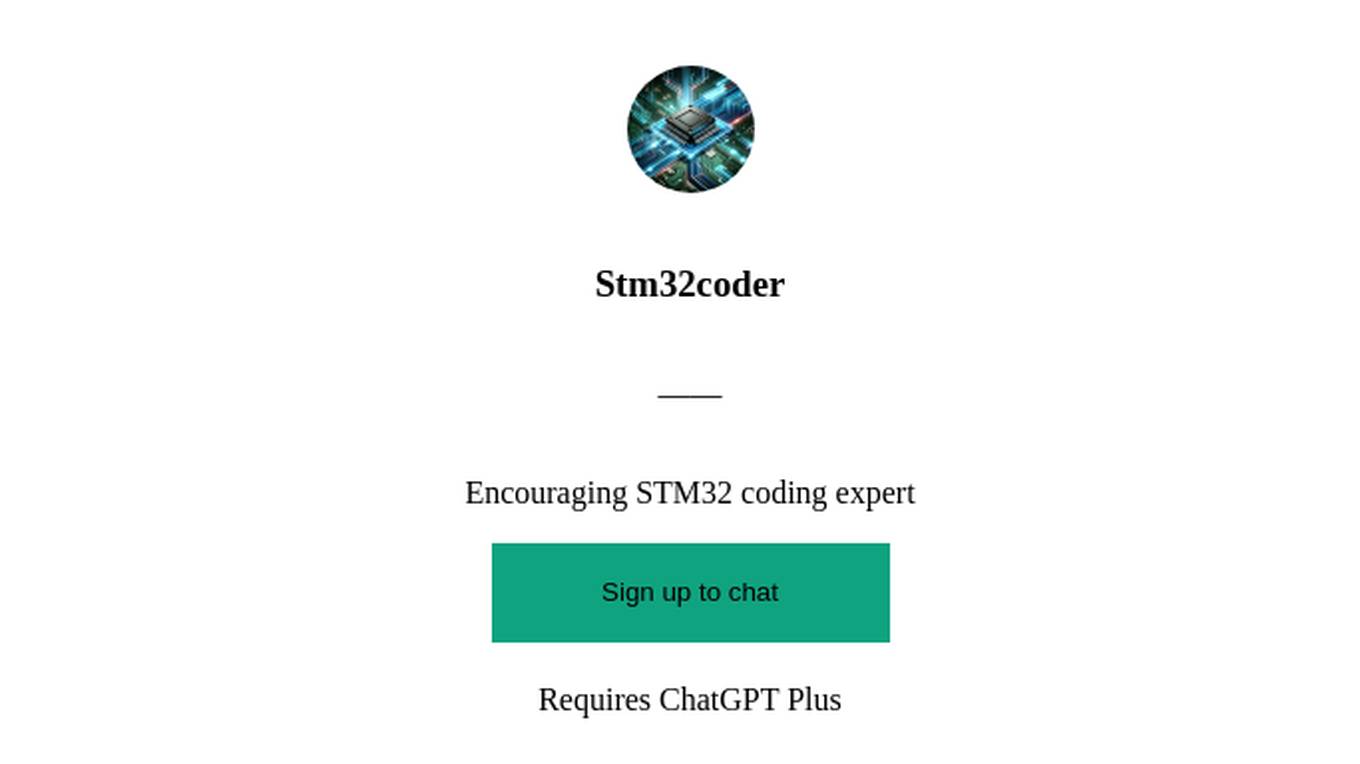Best AI tools for< Hardware Engineer >
Infographic
20 - AI tool Sites
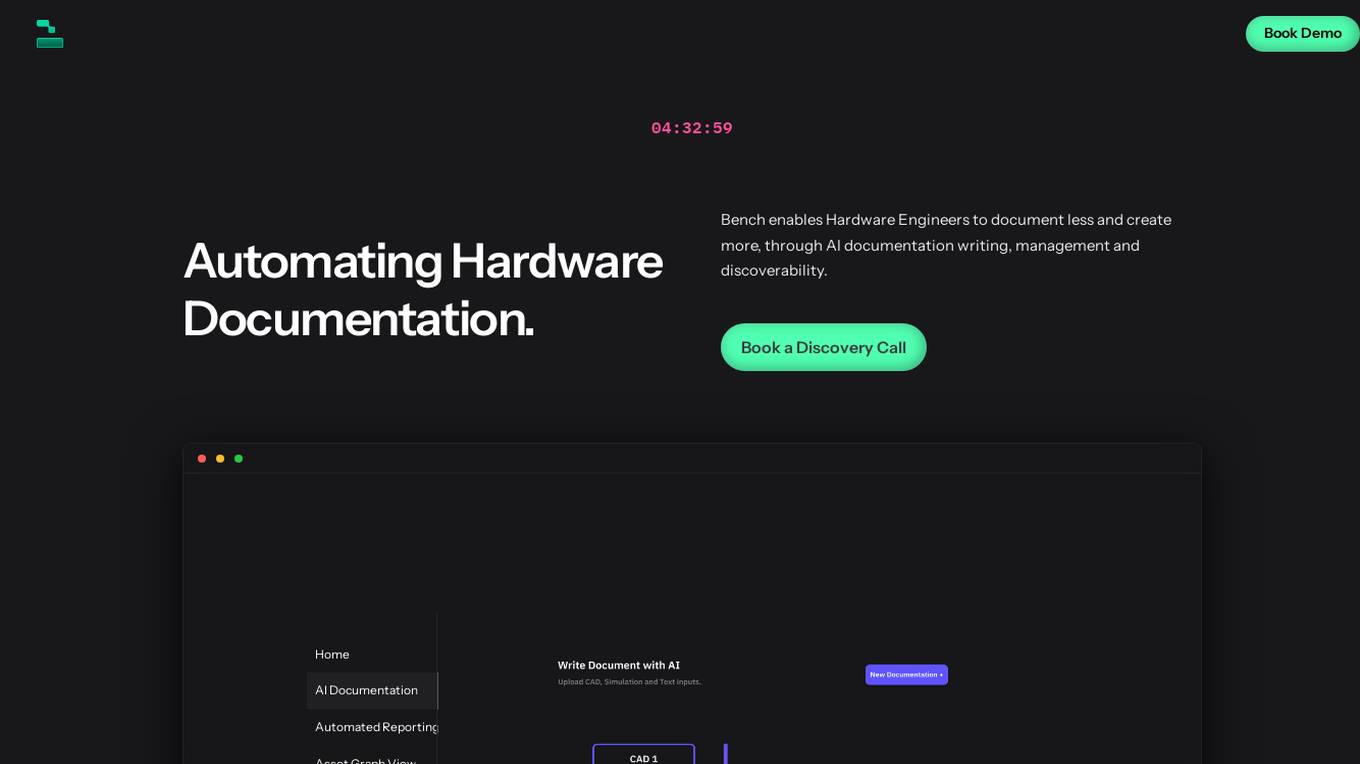
Bench
Bench is an AI tool designed to automate hardware documentation for Hardware Engineers. It helps users document less and create more by utilizing AI for documentation writing, management, and discoverability. The tool offers features such as adapting to specific use cases, AI documentation writing, single source of truth, data-rich asset pages, highlighting compliance gaps, automated reports, and physical asset logging. Bench is advantageous for increasing productivity, improving documentation accuracy, streamlining workflows, enhancing compliance, and enabling seamless integrations. However, it may have limitations in customization options, initial learning curve, and potential dependency on AI accuracy. The tool is suitable for Hardware Engineers, Technical Writers, Documentation Specialists, Compliance Officers, and Quality Assurance Engineers. Users can find Bench using keywords like AI documentation, hardware documentation automation, AI writing tool, documentation management tool, and asset logging AI. Tasks users can perform with Bench include automate documentation, manage assets, write AI documentation, generate reports, and log physical assets.

Quilter
Quilter is an end-to-end PCB design platform that uses generative AI to automate the layout process. It can place components, route traces, define board stackups, and generate pours. Quilter is compatible with existing design tools and libraries, and it returns completed designs in the same file format they were submitted in. Quilter is currently in open beta and is free to use.
Cambricon
Cambricon is an AI technology company that specializes in developing intelligent acceleration cards and systems. They offer a range of products including cloud AI acceleration cards, edge AI chips, and intelligent processing units. Cambricon's advanced chiplet technology and MLUarch03 architecture provide high-performance AI solutions for training and inference tasks. The company is dedicated to advancing the AI industry through innovative hardware and software platforms.
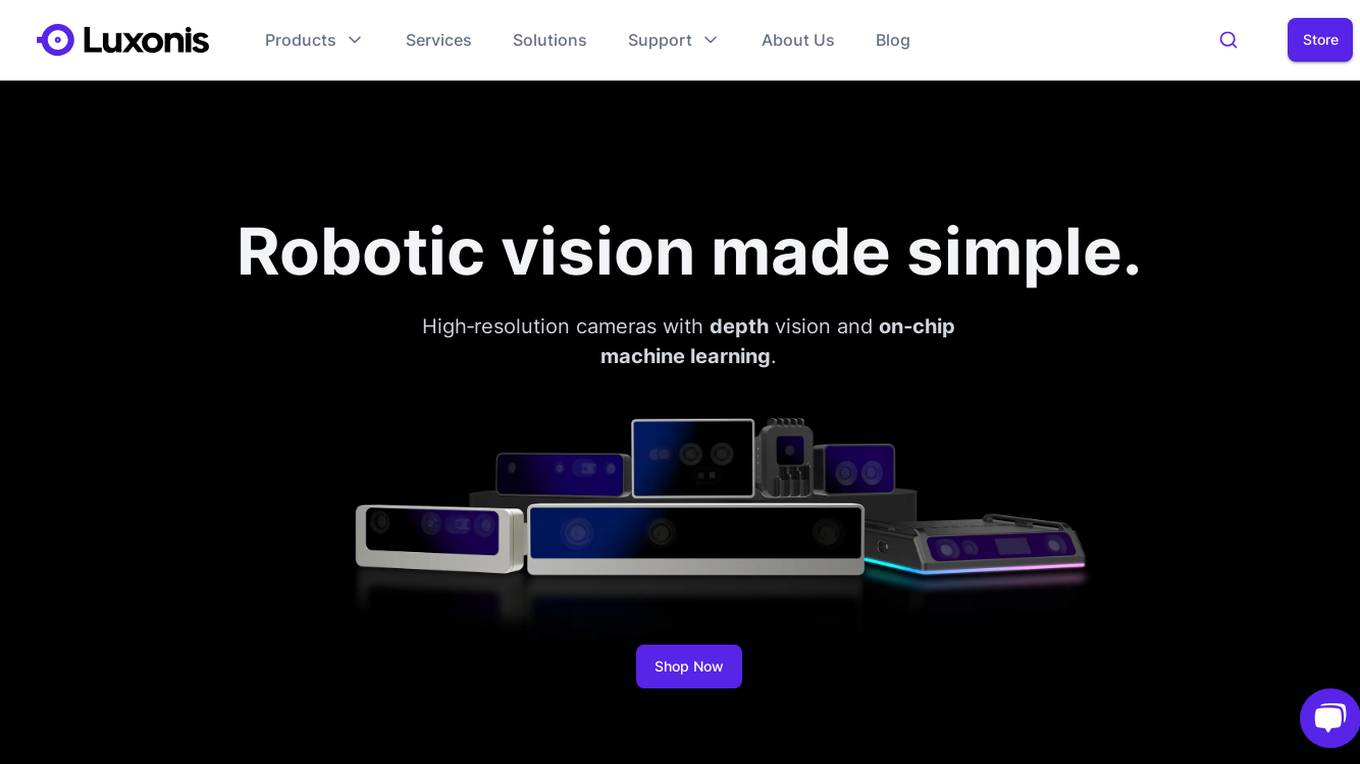
Luxonis
Luxonis is a platform that offers robotic vision solutions through high-resolution cameras with depth vision and on-chip machine learning capabilities. Their products include OAK Cameras and Modules, providing features like Stereo Depth Sensing, Computer Vision, Artificial Intelligence, and Cloud Management. Luxonis enables the development of computer vision products and companies by offering performant and affordable hardware solutions. The platform caters to enterprises and hobbyists, empowering them to easily build embedded vision systems.

PC Builder AI
PC Builder AI is an artificial intelligence tool developed by AE Studio to assist users in building a customized PC based on their budget and preferences. The tool allows users to input their desired budget and PC specifications, and it provides real-time price updates to help users get the best value for their money. With a user-friendly interface, PC Builder AI simplifies the process of selecting components and building a PC tailored to individual needs. Whether you are a tech enthusiast or a novice, PC Builder AI can help you create a high-performance PC without the hassle of researching and comparing components.
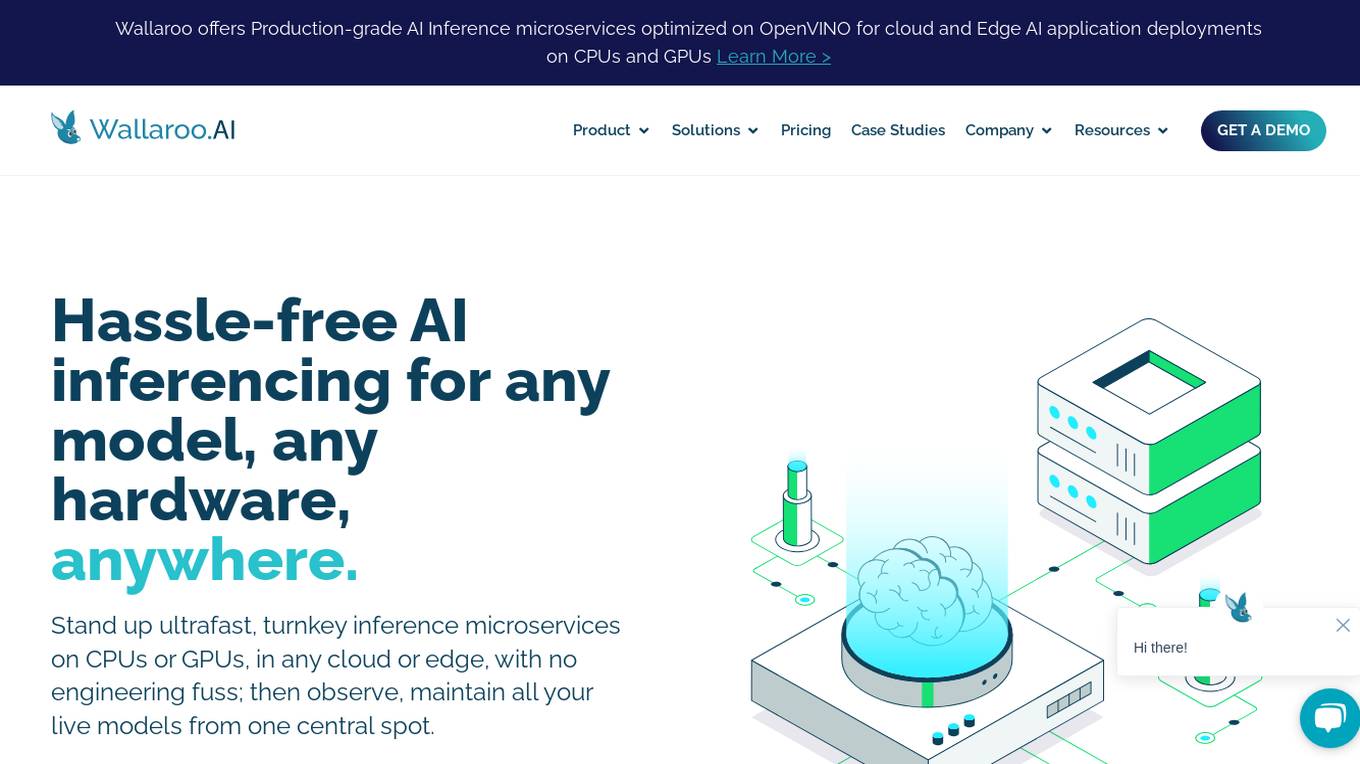
Wallaroo.AI
Wallaroo.AI is an AI inference platform that offers production-grade AI inference microservices optimized on OpenVINO for cloud and Edge AI application deployments on CPUs and GPUs. It provides hassle-free AI inferencing for any model, any hardware, anywhere, with ultrafast turnkey inference microservices. The platform enables users to deploy, manage, observe, and scale AI models effortlessly, reducing deployment costs and time-to-value significantly.
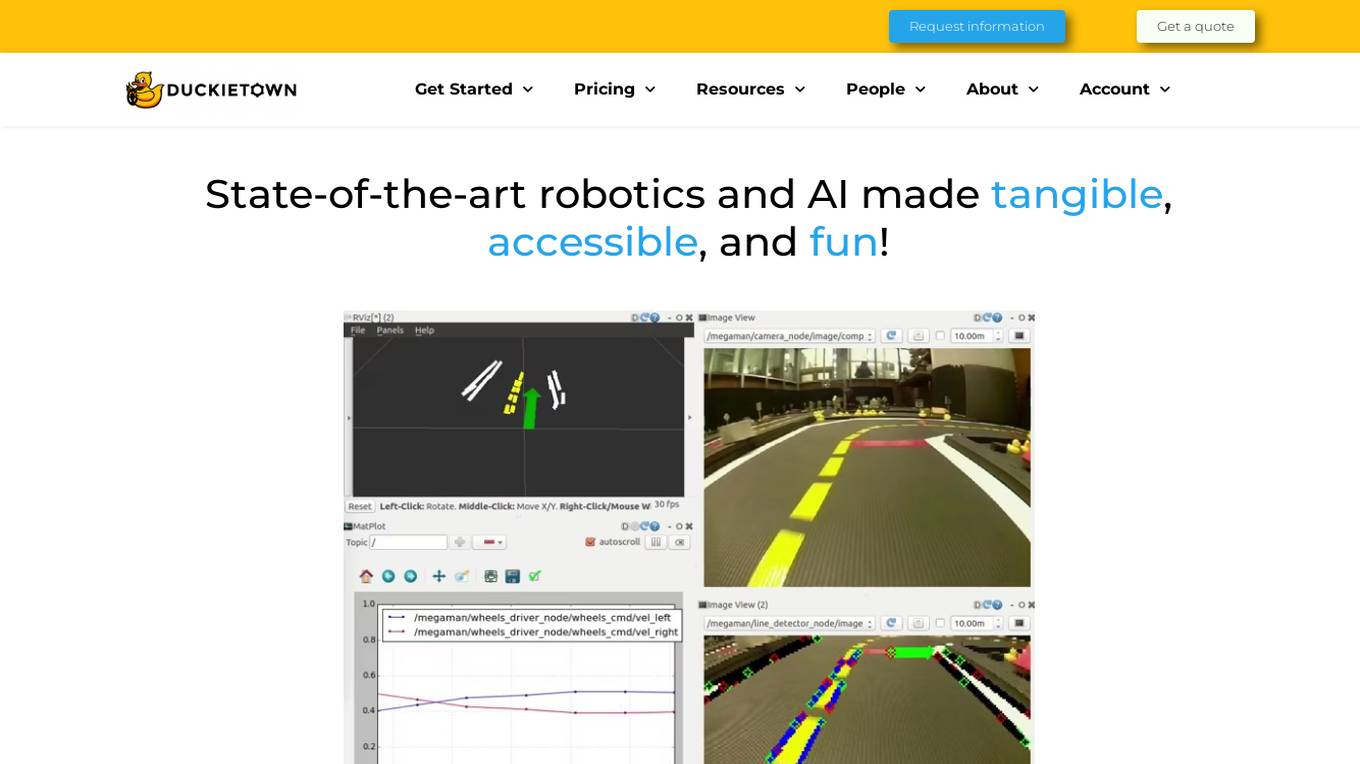
Duckietown
Duckietown is a platform for delivering cutting-edge robotics and AI learning experiences. It offers teaching resources to instructors, hands-on activities to learners, an accessible research platform to researchers, and a state-of-the-art ecosystem for professional training. Duckietown's mission is to make robotics and AI education state-of-the-art, hands-on, and accessible to all.

Groq
Groq is a fast AI inference tool that offers GroqCloud™ Platform and GroqRack™ Cluster for developers to build and deploy AI models with ultra-low-latency inference. It provides instant intelligence for openly-available models like Llama 3.1 and is known for its speed and compatibility with other AI providers. Groq powers leading openly-available AI models and has gained recognition in the AI chip industry. The tool has received significant funding and valuation, positioning itself as a strong challenger to established players like Nvidia.

SoundHound
SoundHound is a leading innovator of conversational intelligence and voice AI technologies. Our independent voice AI platform is built for more natural conversation, enabling businesses to create customized and scalable voice AI solutions for their specific industries and use cases. With SoundHound, you can build voice assistants, enhance smart devices, improve customer experiences, and drive business value.

Luminar
Luminar is a leading developer of automotive lidar technology. The company's mission is to make roads safer by eliminating vehicle accidents. Luminar's lidar sensors provide cars with a detailed view of their surroundings, enabling them to make better decisions and avoid collisions. Luminar's technology is being used by a number of automakers, including Volvo, SAIC Motor, and Polestar.
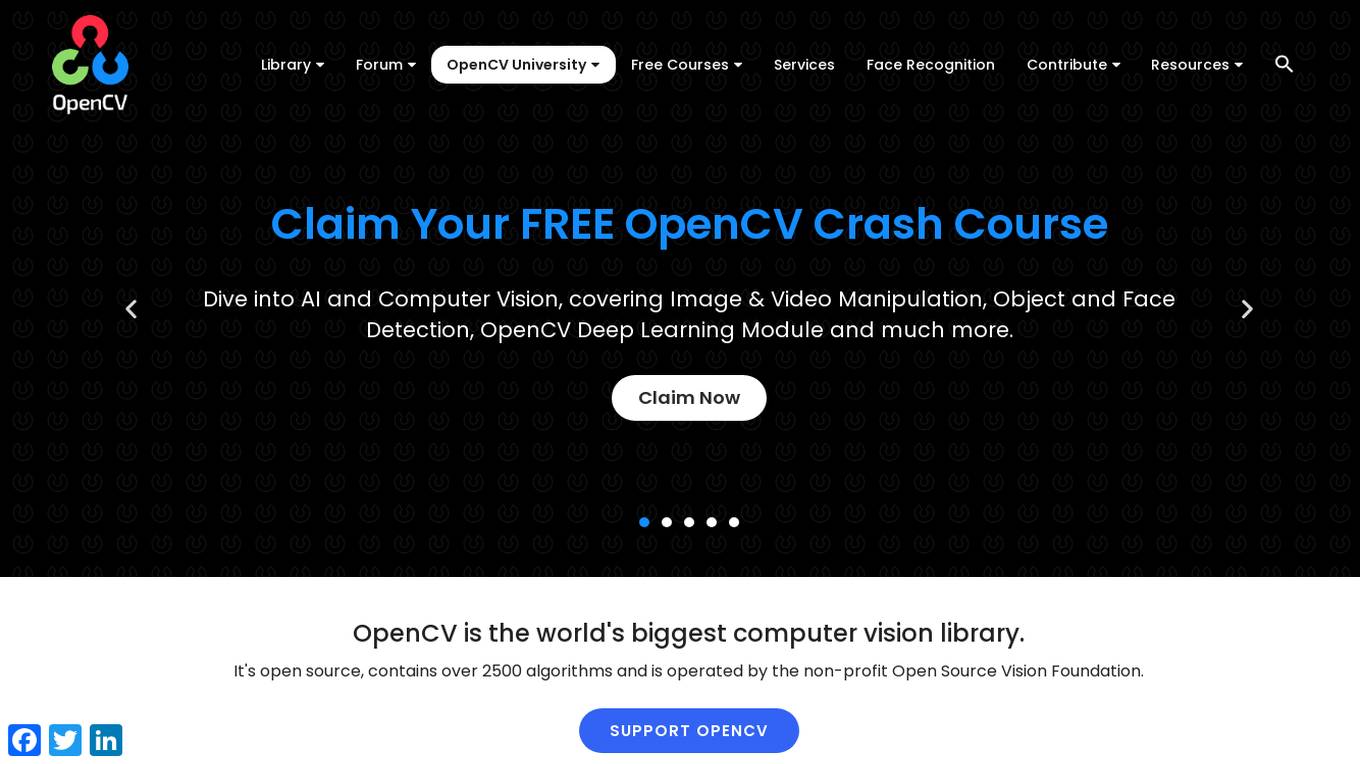
OpenCV
OpenCV is the world's largest computer vision library. It's open source, contains over 2500 algorithms and is operated by the non-profit Open Source Vision Foundation.

Embedl
Embedl is an AI tool that specializes in developing advanced solutions for efficient AI deployment in embedded systems. With a focus on deep learning optimization, Embedl offers a cost-effective solution that reduces energy consumption and accelerates product development cycles. The platform caters to industries such as automotive, aerospace, and IoT, providing cutting-edge AI products that drive innovation and competitive advantage.

VisionLabs
VisionLabs is a leading provider of facial recognition technology that enhances digital identity experiences. Their Artificial Intelligence and Machine Learning technology, based on neural network algorithms, ensures a safer and more secure world, enabling seamless navigation in the digital realm. With applications in over 60 countries across various industries, VisionLabs aims to facilitate better and safer interactions through facial recognition technology.
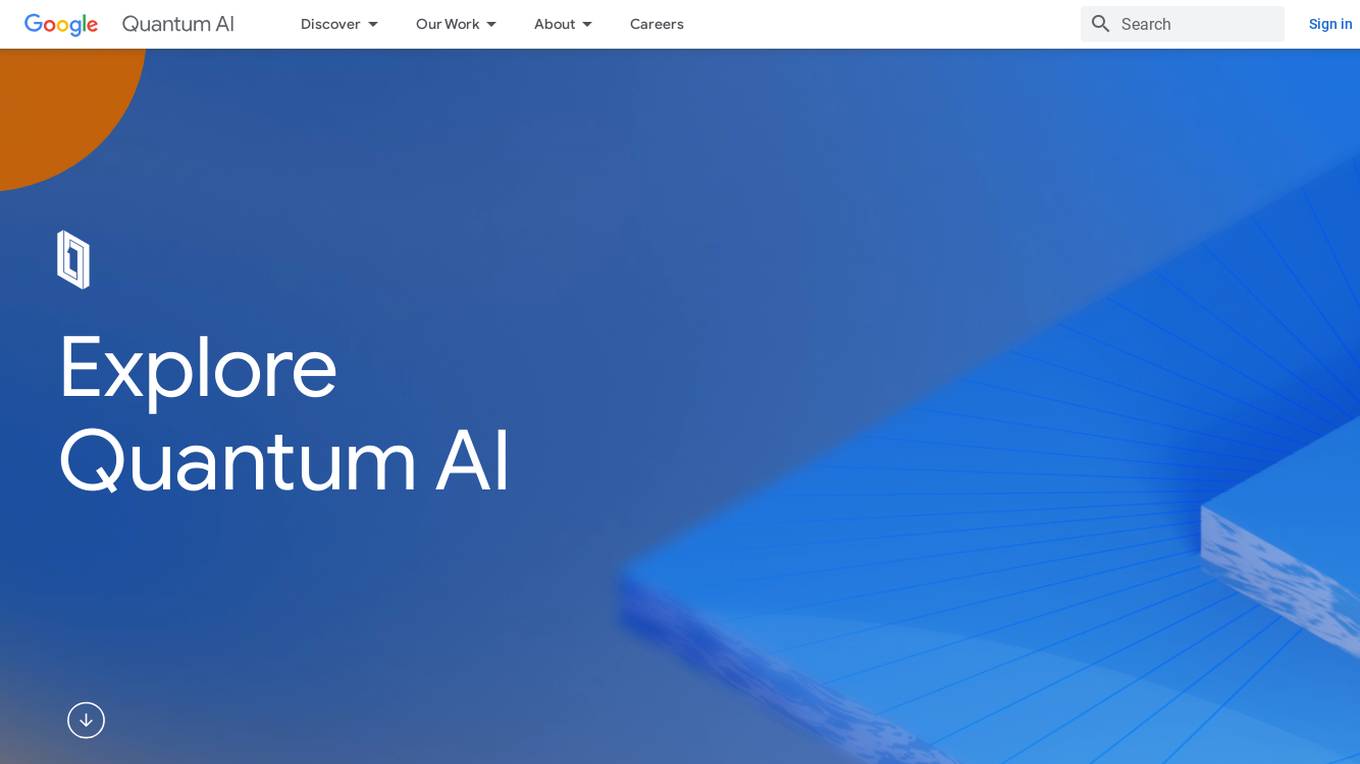
Google Quantum AI
Google Quantum AI is a leading platform dedicated to advancing the field of quantum computing. The platform offers educational resources, research publications, open-source tools like Cirq, and career opportunities. Google Quantum AI's mission is to build best-in-class quantum computing systems with error correction capabilities, enabling the solution of complex problems that are currently intractable for classical computers. The platform also hosts the XPRIZE Quantum Applications competition, collaborates with industry and academic partners to explore future applications of quantum computing, and shares research and blog posts on quantum algorithms and advancements.
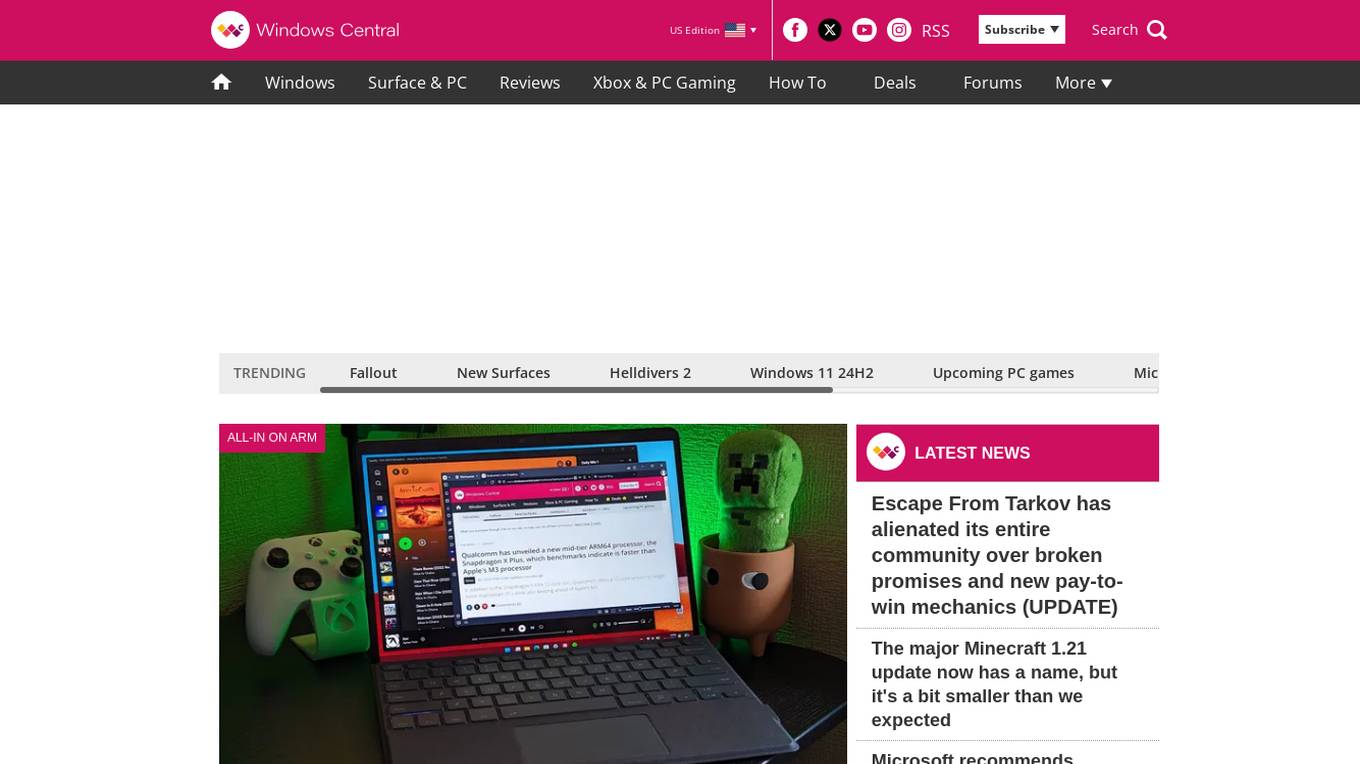
Windows Central
Windows Central is a website that provides news, reviews, and help on Windows 10, Windows 11, Xbox, and more. It covers a wide range of topics, including hardware, software, gaming, and accessories. The website also has a forum where users can ask questions and discuss topics related to Windows and Xbox.
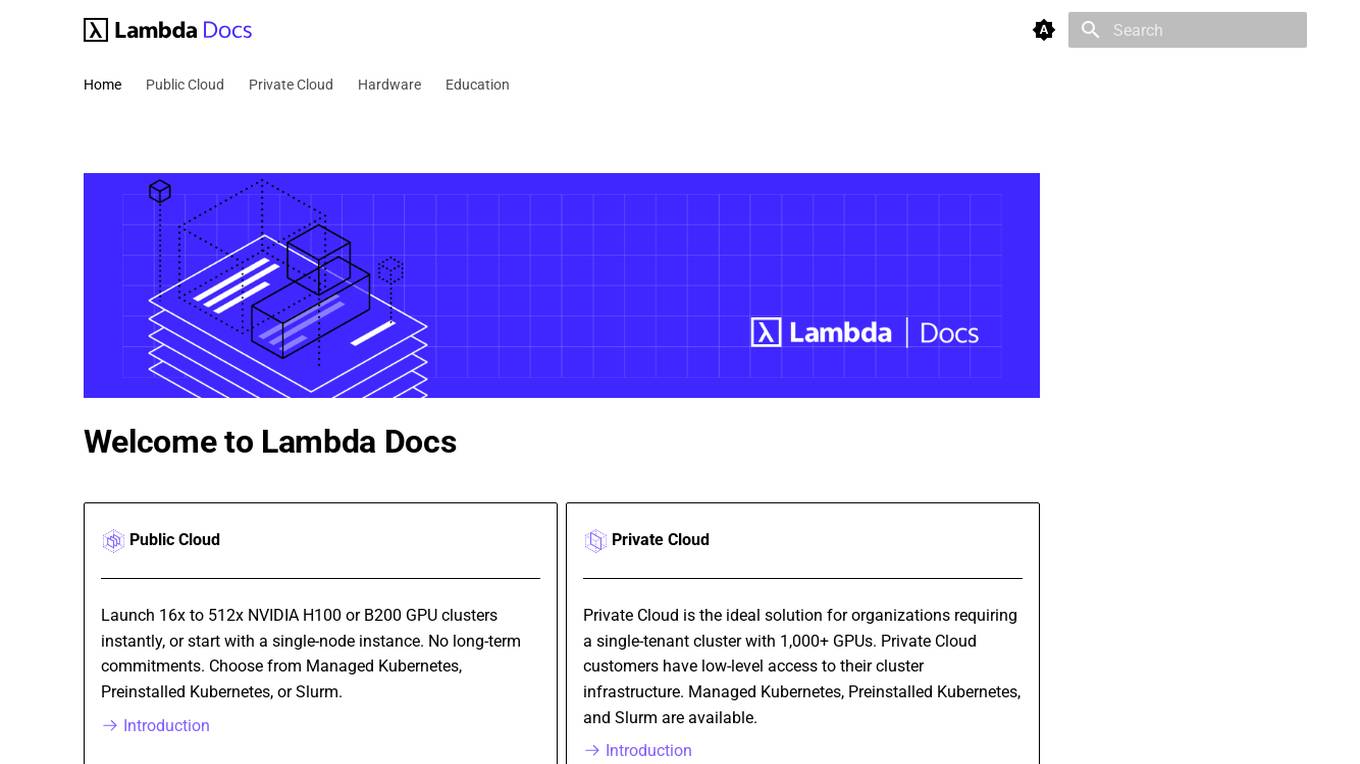
Lambda Docs
Lambda Docs is an AI tool that provides cloud and hardware solutions for individuals, teams, and organizations. It offers services such as Managed Kubernetes, Preinstalled Kubernetes, Slurm, and access to GPU clusters. The platform also provides educational resources and tutorials for machine learning engineers and researchers to fine-tune models and deploy AI solutions.
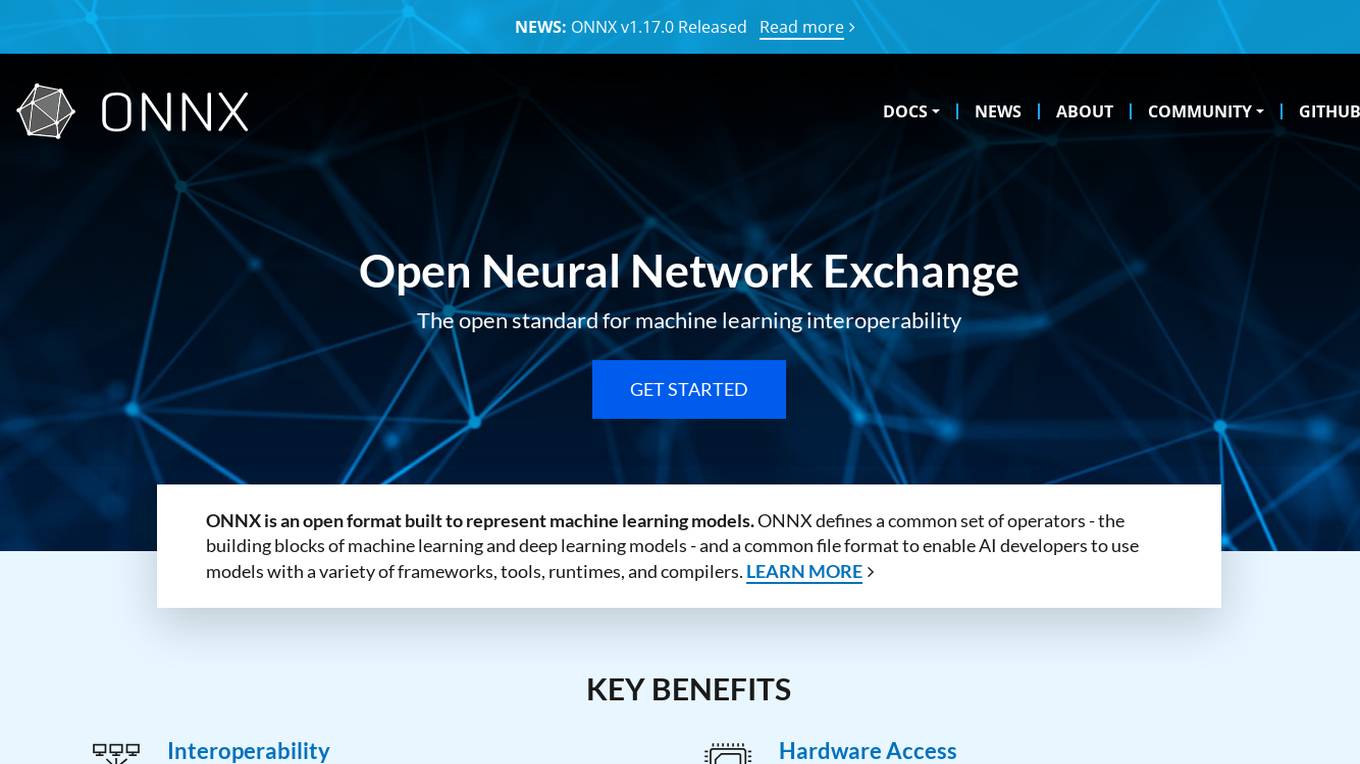
ONNX
ONNX is an open standard for machine learning interoperability, providing a common format to represent machine learning models. It defines a set of operators and a file format for AI developers to use models across various frameworks, tools, runtimes, and compilers. ONNX promotes interoperability, hardware access, and community engagement.

Tensoic AI
Tensoic AI is an AI tool designed for custom Large Language Models (LLMs) fine-tuning and inference. It offers ultra-fast fine-tuning and inference capabilities for enterprise-grade LLMs, with a focus on use case-specific tasks. The tool is efficient, cost-effective, and easy to use, enabling users to outperform general-purpose LLMs using synthetic data. Tensoic AI generates small, powerful models that can run on consumer-grade hardware, making it ideal for a wide range of applications.

True Anomaly
True Anomaly is a technology company focused on redefining space security by developing hardware and software solutions at the intersection of spacecraft, software, and AI. The company aims to enhance the capabilities of the U.S., its allies, and commercial partners to safeguard global security and ensure space access and sustainability for all. True Anomaly offers a holistic platform powered by a common operating system for end-to-end development of applications and services for space-based missions.

NVIDIA
NVIDIA is a world leader in artificial intelligence computing, providing hardware and software solutions for gaming, entertainment, data centers, edge computing, and more. Their platforms like Jetson and Isaac enable the development and deployment of AI-powered autonomous machines. NVIDIA's AI applications span various industries, from healthcare to manufacturing, and their technology is transforming the world's largest industries and impacting society profoundly.
30 - Open Source Tools

tt-metal
TT-NN is a python & C++ Neural Network OP library. It provides a low-level programming model, TT-Metalium, enabling kernel development for Tenstorrent hardware.
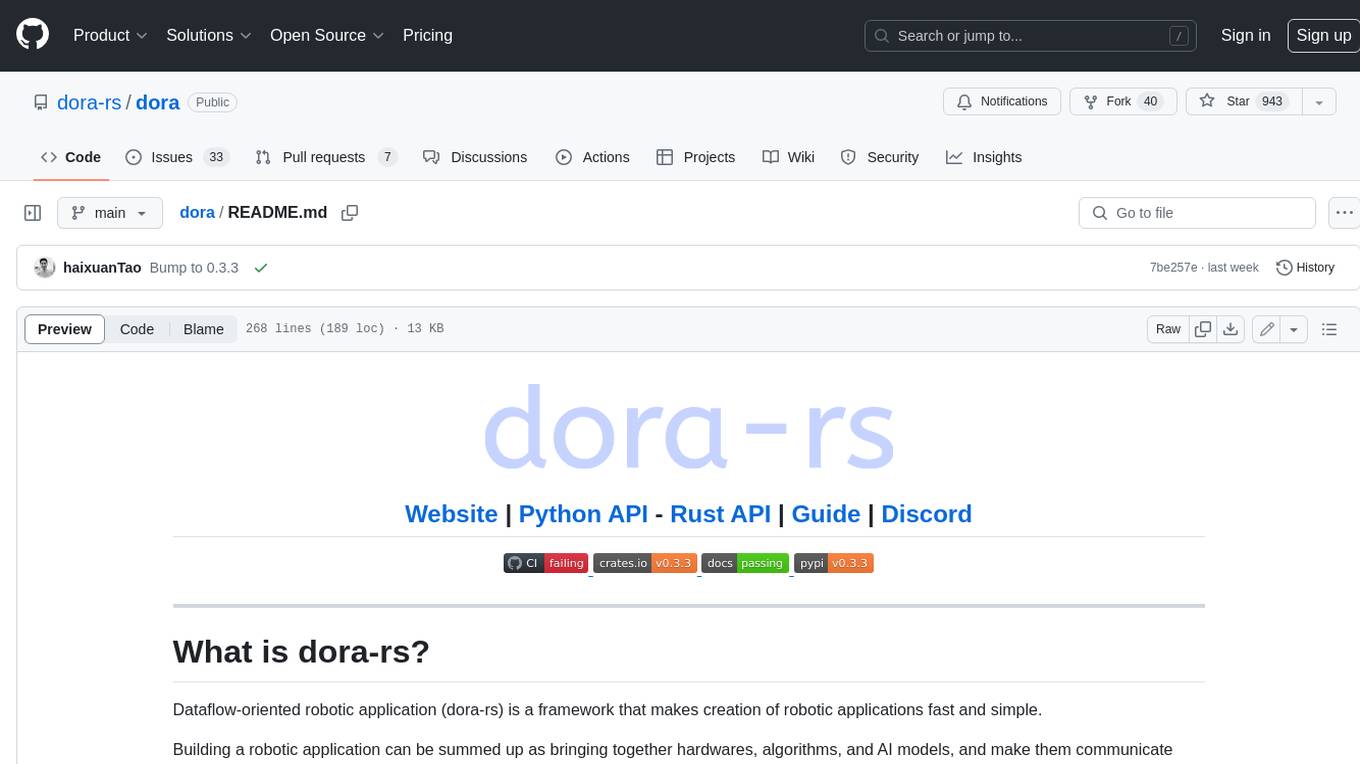
dora
Dataflow-oriented robotic application (dora-rs) is a framework that makes creation of robotic applications fast and simple. Building a robotic application can be summed up as bringing together hardwares, algorithms, and AI models, and make them communicate with each others. At dora-rs, we try to: make integration of hardware and software easy by supporting Python, C, C++, and also ROS2. make communication low latency by using zero-copy Arrow messages. dora-rs is still experimental and you might experience bugs, but we're working very hard to make it stable as possible.
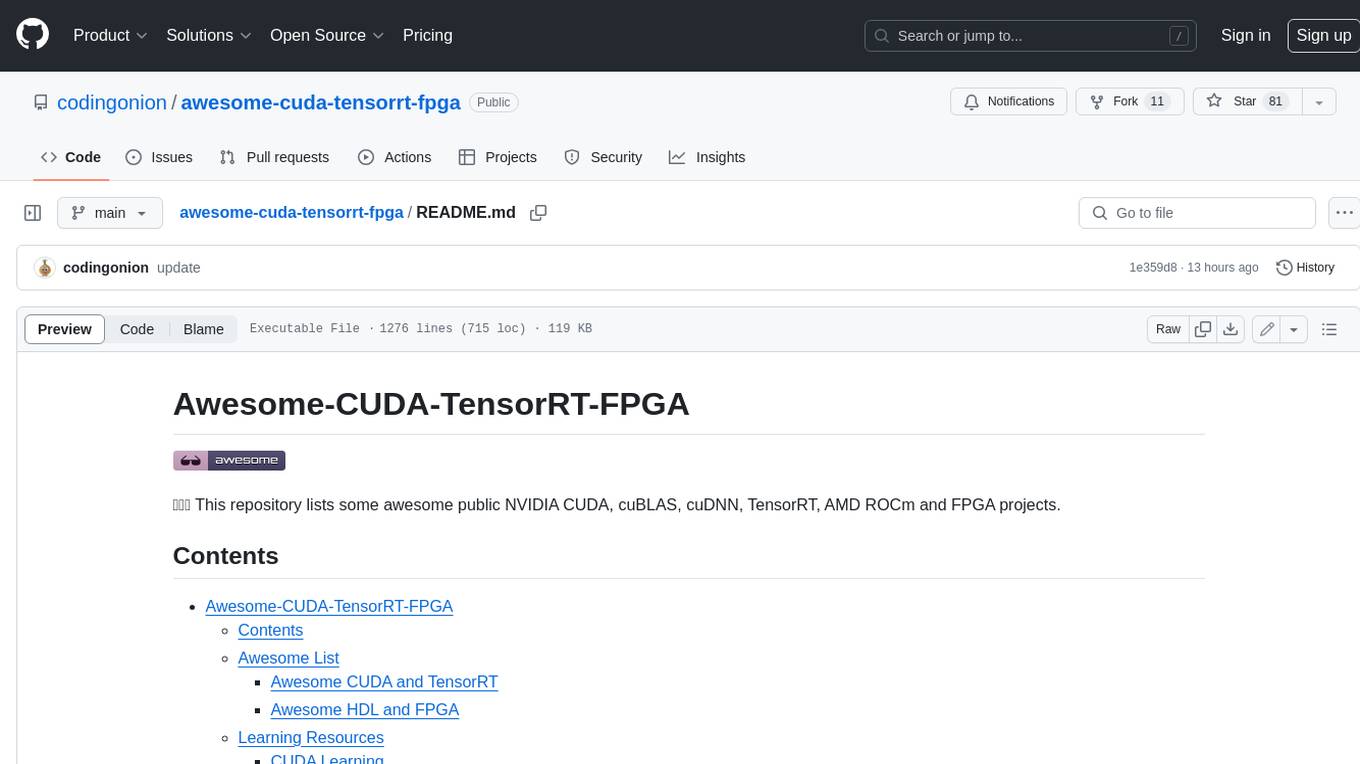
awesome-cuda-tensorrt-fpga
Okay, here is a JSON object with the requested information about the awesome-cuda-tensorrt-fpga repository:
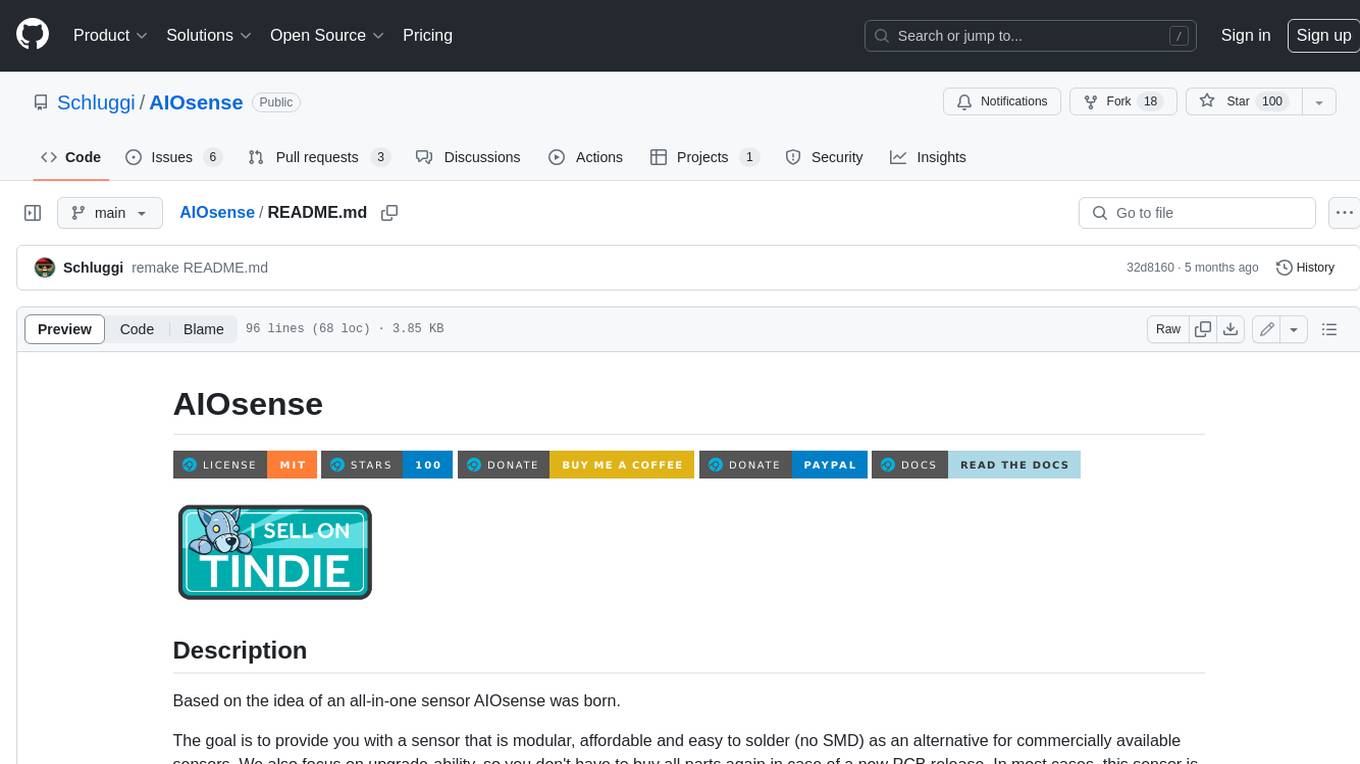
AIOsense
AIOsense is an all-in-one sensor that is modular, affordable, and easy to solder. It is designed to be an alternative to commercially available sensors and focuses on upgradeability. AIOsense is cheaper and better than most commercial sensors and supports a variety of sensors and modules, including: - (RGB)-LED - Barometer - Breath VOC equivalent - Buzzer / Beeper - CO² equivalent - Humidity sensor - Light / Illumination sensor - PIR motion sensor - Temperature sensor - mmWave / Radar sensor Upcoming features include full voice assistant support, microphone, and speaker. All supported sensors & modules are listed in the documentation. AIOsense has a low power consumption, with an idle power consumption of 0.45W / 0.09A on a fully equipped board. Without a mmWave sensor, the idle power consumption is around 0.11W / 0.02A. To get started with AIOsense, you can refer to the documentation. If you have any questions, you can open an issue.
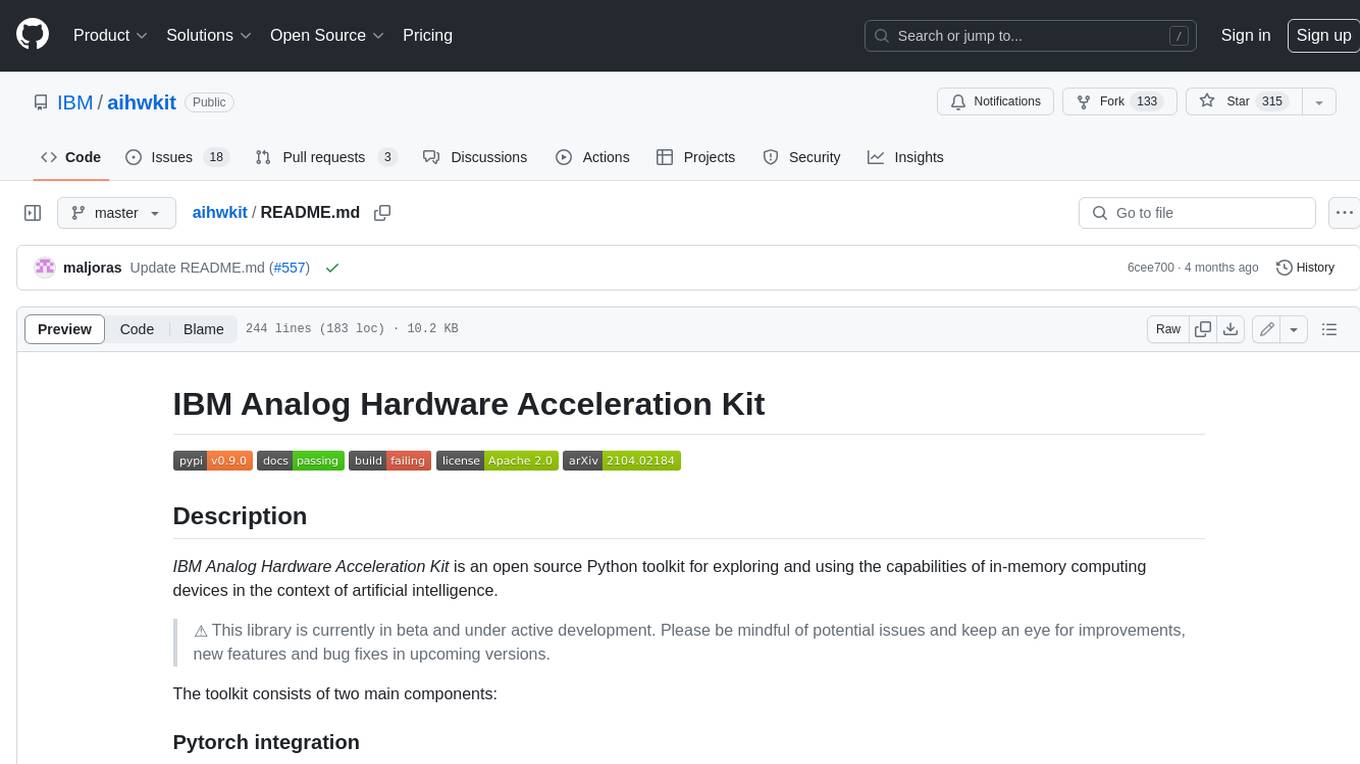
aihwkit
The IBM Analog Hardware Acceleration Kit is an open-source Python toolkit for exploring and using the capabilities of in-memory computing devices in the context of artificial intelligence. It consists of two main components: Pytorch integration and Analog devices simulator. The Pytorch integration provides a series of primitives and features that allow using the toolkit within PyTorch, including analog neural network modules, analog training using torch training workflow, and analog inference using torch inference workflow. The Analog devices simulator is a high-performant (CUDA-capable) C++ simulator that allows for simulating a wide range of analog devices and crossbar configurations by using abstract functional models of material characteristics with adjustable parameters. Along with the two main components, the toolkit includes other functionalities such as a library of device presets, a module for executing high-level use cases, a utility to automatically convert a downloaded model to its equivalent Analog model, and integration with the AIHW Composer platform. The toolkit is currently in beta and under active development, and users are advised to be mindful of potential issues and keep an eye for improvements, new features, and bug fixes in upcoming versions.
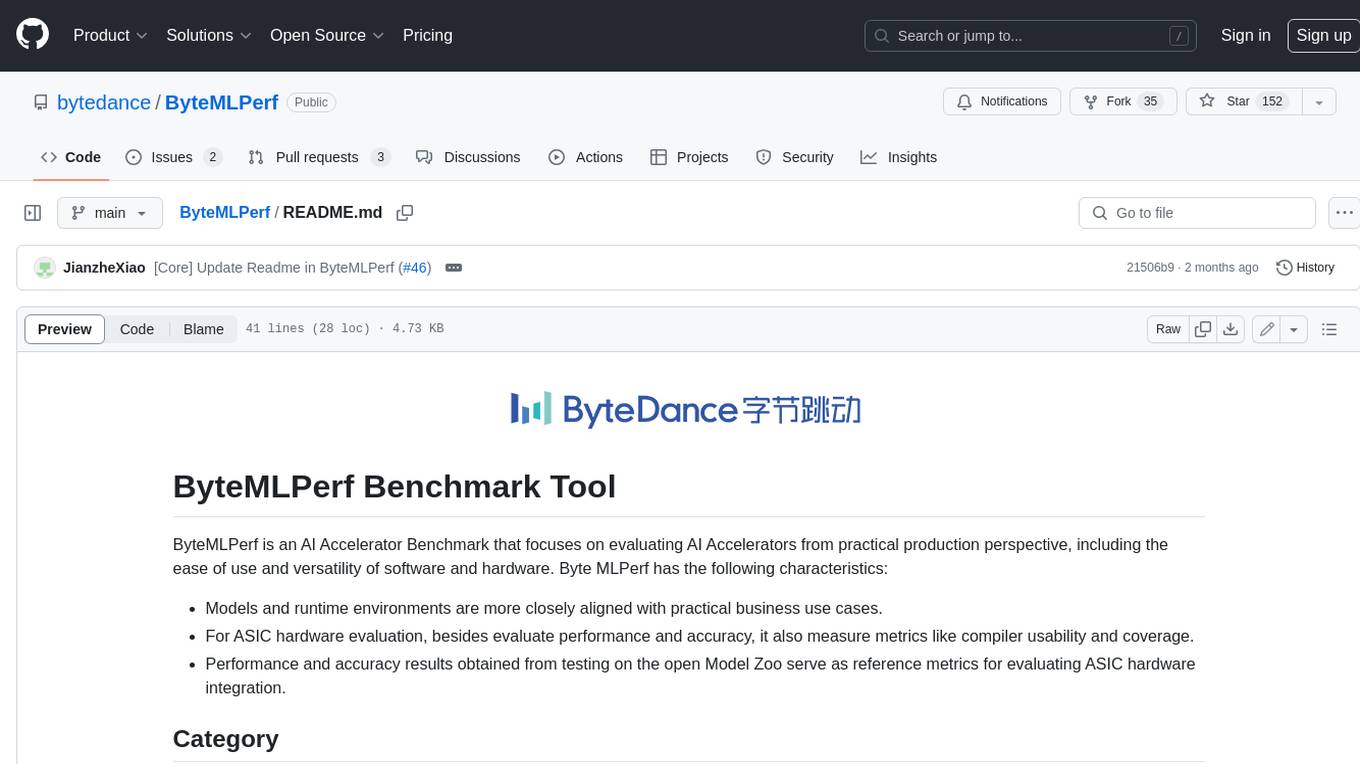
ByteMLPerf
ByteMLPerf is an AI Accelerator Benchmark that focuses on evaluating AI Accelerators from a practical production perspective, including the ease of use and versatility of software and hardware. Byte MLPerf has the following characteristics: - Models and runtime environments are more closely aligned with practical business use cases. - For ASIC hardware evaluation, besides evaluate performance and accuracy, it also measure metrics like compiler usability and coverage. - Performance and accuracy results obtained from testing on the open Model Zoo serve as reference metrics for evaluating ASIC hardware integration.

GlaDOS
This project aims to create a real-life version of GLaDOS, an aware, interactive, and embodied AI entity. It involves training a voice generator, developing a 'Personality Core,' implementing a memory system, providing vision capabilities, creating 3D-printable parts, and designing an animatronics system. The software architecture focuses on low-latency voice interactions, utilizing a circular buffer for data recording, text streaming for quick transcription, and a text-to-speech system. The project also emphasizes minimal dependencies for running on constrained hardware. The hardware system includes servo- and stepper-motors, 3D-printable parts for GLaDOS's body, animations for expression, and a vision system for tracking and interaction. Installation instructions cover setting up the TTS engine, required Python packages, compiling llama.cpp, installing an inference backend, and voice recognition setup. GLaDOS can be run using 'python glados.py' and tested using 'demo.ipynb'.
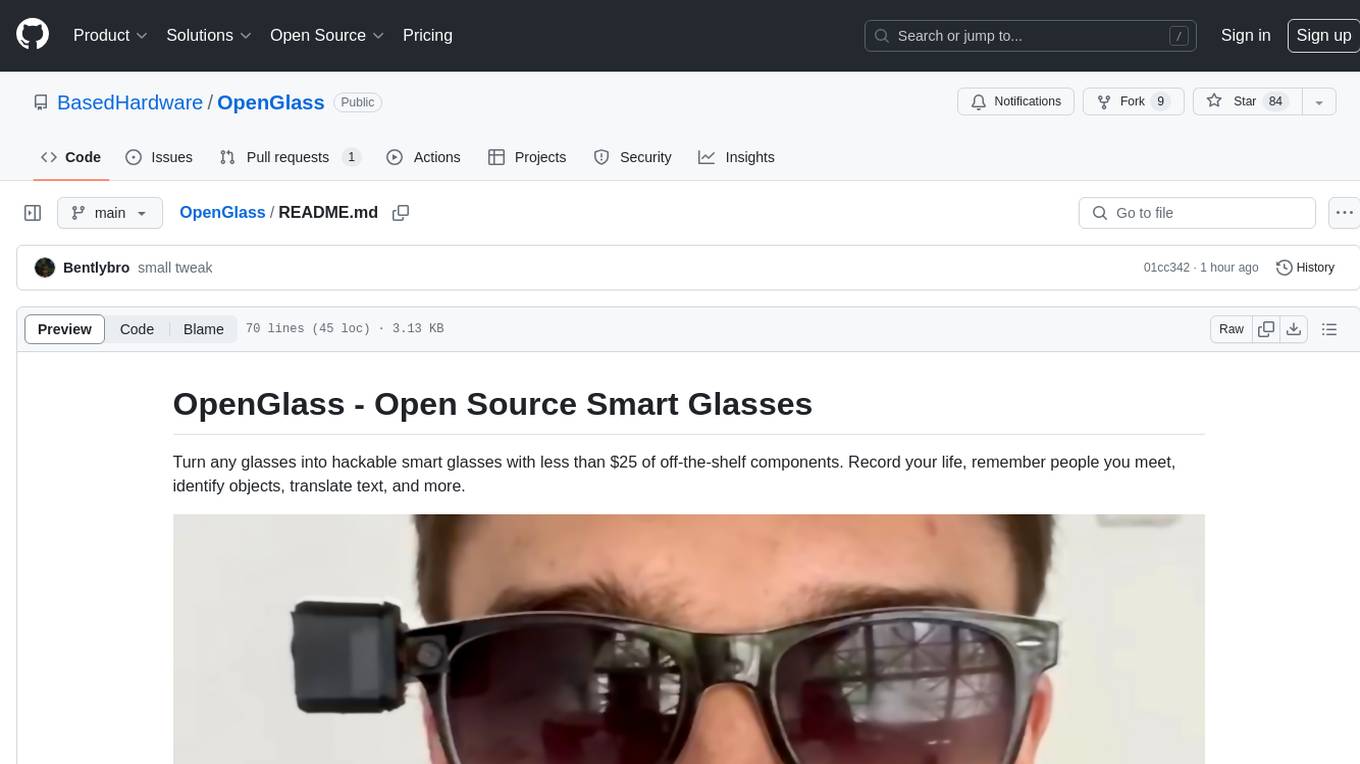
OpenGlass
OpenGlass is an open-source project that allows users to transform any regular glasses into smart glasses using affordable off-the-shelf components. With a cost of less than $25, users can enhance their glasses to record their daily activities, recognize people, identify objects, translate text, and more. The project provides detailed instructions on hardware setup and software installation, making it accessible for DIY enthusiasts and tech enthusiasts alike. By following the steps outlined in the repository, users can create their own smart glasses and explore various functionalities offered by the project.
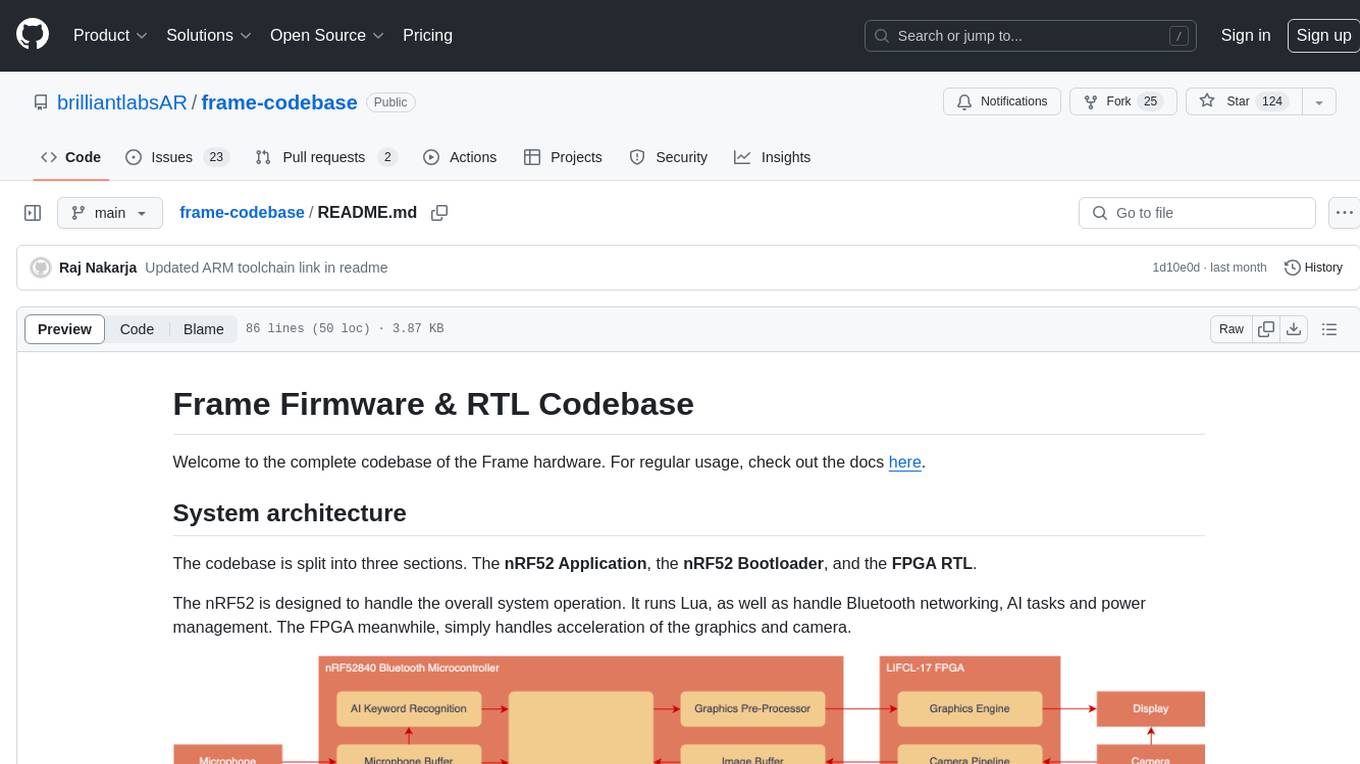
frame-codebase
The Frame Firmware & RTL Codebase is a comprehensive repository containing code for the Frame hardware system architecture. It includes sections for nRF52 Application, nRF52 Bootloader, and FPGA RTL. The nRF52 handles system operation, Lua scripting, Bluetooth networking, AI tasks, and power management, while the FPGA accelerates graphics and camera processing. The repository provides instructions for firmware development, debugging in VSCode, and FPGA development using tools like ARM GCC Toolchain, nRF Command Line Tools, Yosys, Project Oxide, and nextpnr. Users can build and flash projects for nRF52840 DK, modify FPGA RTL, and access pre-built accelerators bundled in the repo.
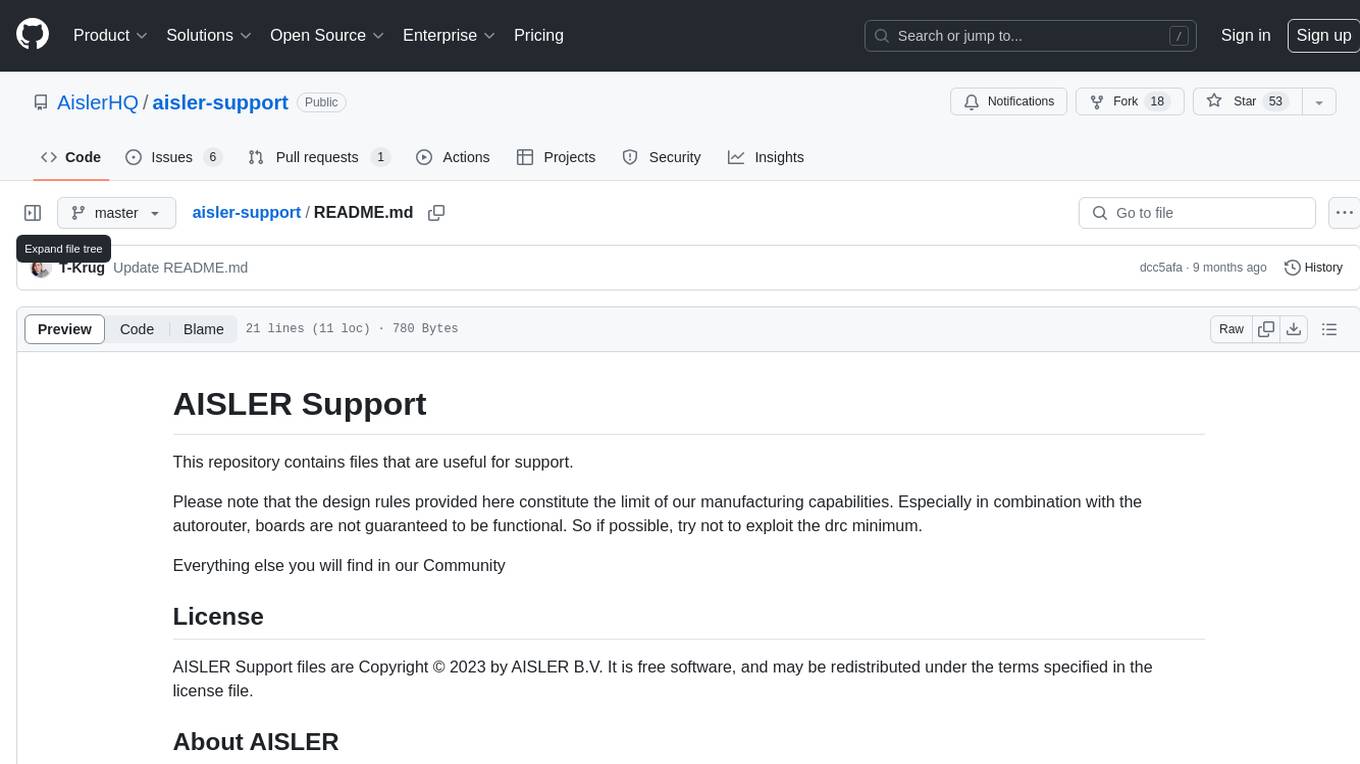
aisler-support
AISLER Support repository contains files useful for support. Design rules provided here limit manufacturing capabilities. Boards may not be functional with autorouter. Explore more in Community. AISLER Support files are Copyright © 2023 by AISLER B.V. Free software under specified license terms. Visit AISLER for industry quality and affordable PCBs.
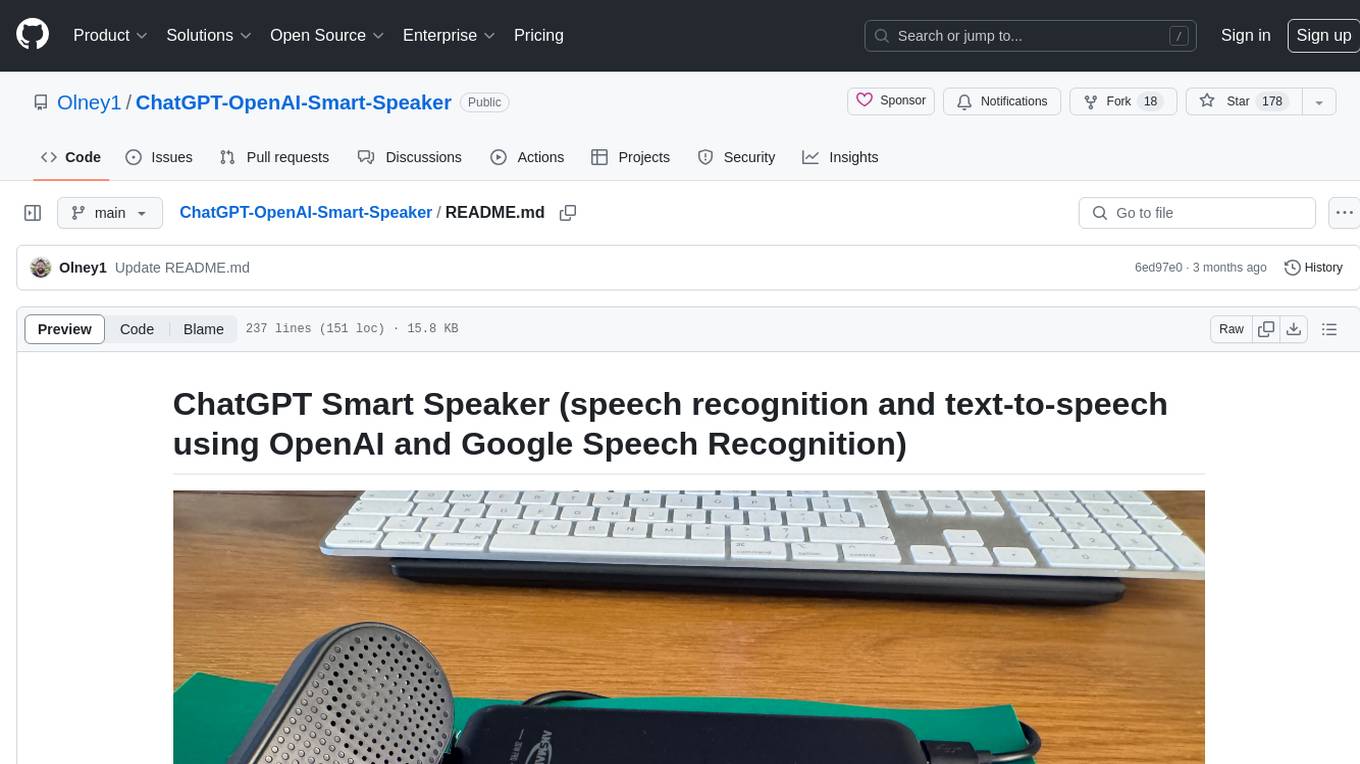
ChatGPT-OpenAI-Smart-Speaker
ChatGPT Smart Speaker is a project that enables speech recognition and text-to-speech functionalities using OpenAI and Google Speech Recognition. It provides scripts for running on PC/Mac and Raspberry Pi, allowing users to interact with a smart speaker setup. The project includes detailed instructions for setting up the required hardware and software dependencies, along with customization options for the OpenAI model engine, language settings, and response randomness control. The Raspberry Pi setup involves utilizing the ReSpeaker hardware for voice feedback and light shows. The project aims to offer an advanced smart speaker experience with features like wake word detection and response generation using AI models.
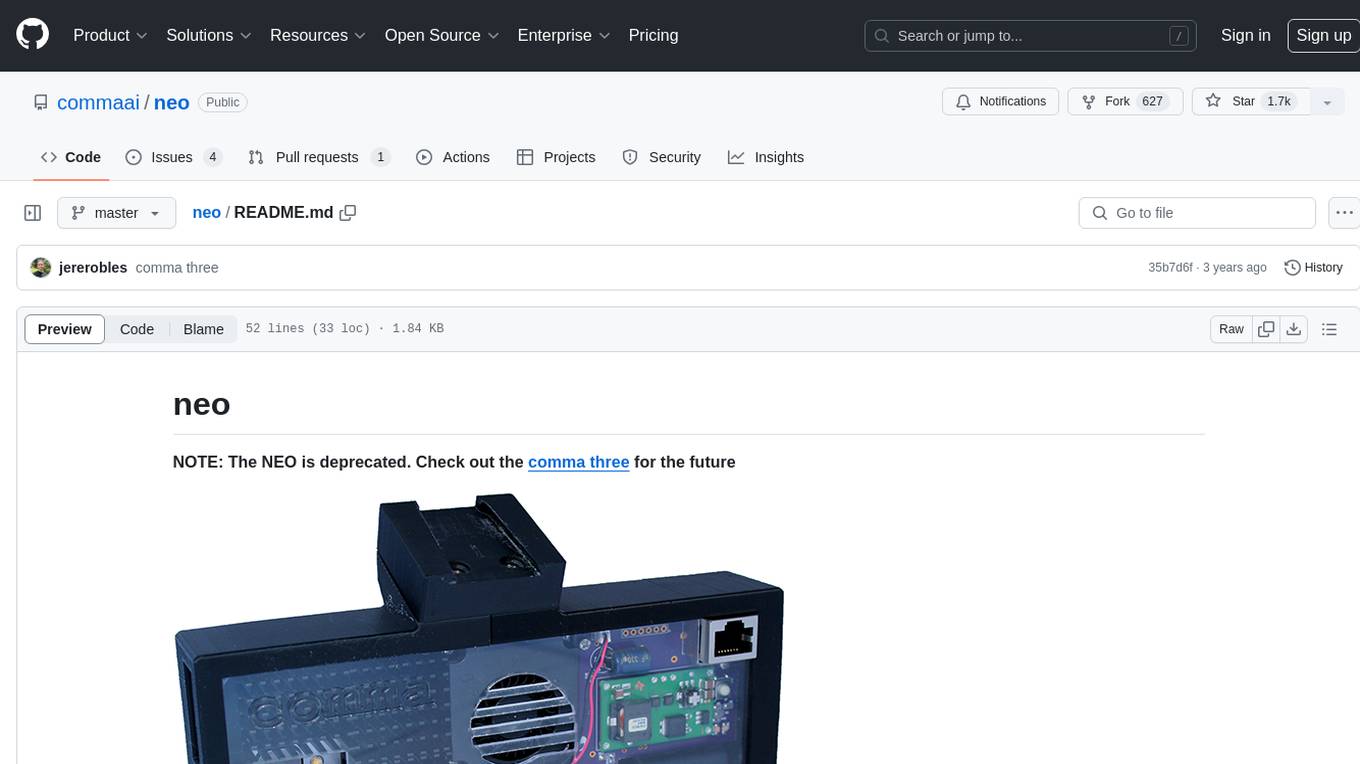
neo
The neo is an open source robotics research platform powered by a OnePlus 3 smartphone and an STM32F205-based CAN interface board, housed in a 3d-printed casing with active cooling. It includes NEOS, a stripped down Android ROM, and offers a modern Linux environment for development. The platform leverages the high performance embedded processor and sensor capabilities of modern smartphones at a low cost. A detailed guide is available for easy construction, requiring online shopping and soldering skills. The total cost for building a neo is approximately $700.
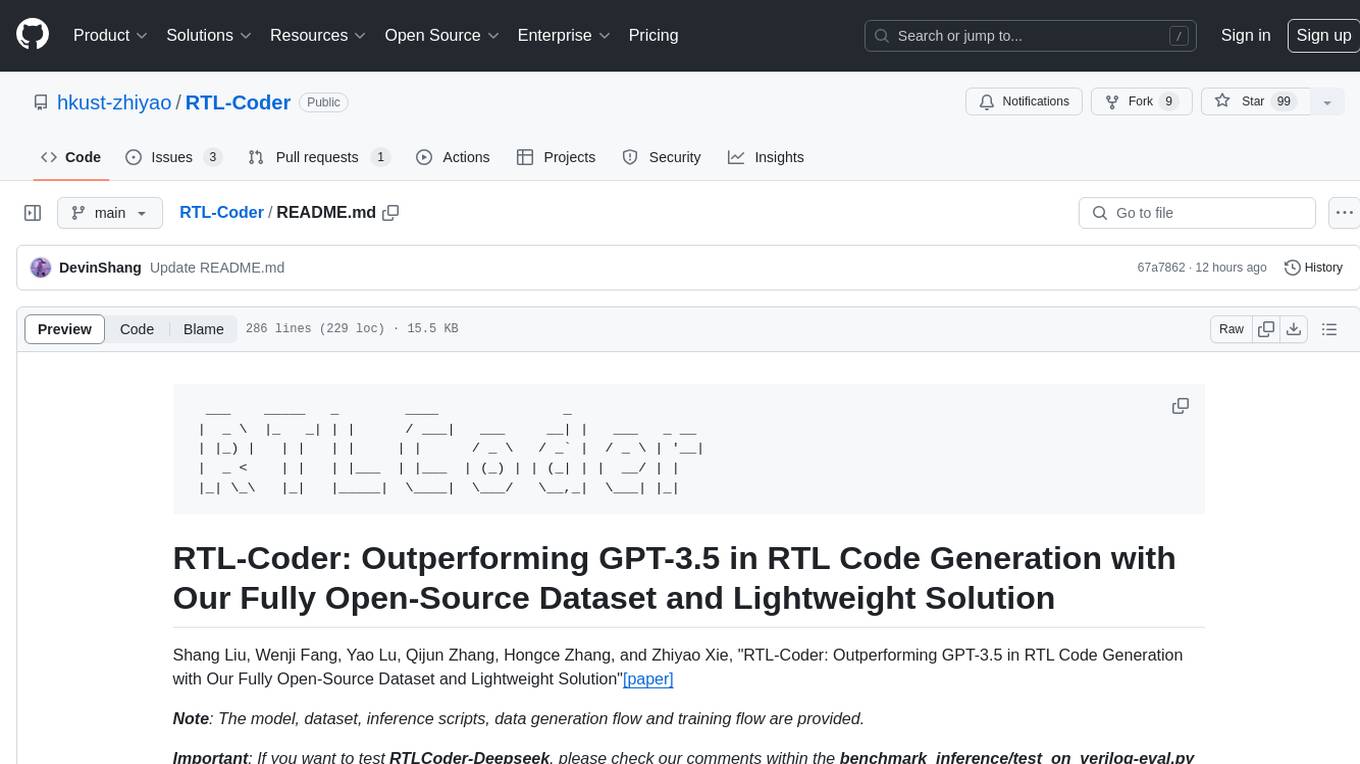
RTL-Coder
RTL-Coder is a tool designed to outperform GPT-3.5 in RTL code generation by providing a fully open-source dataset and a lightweight solution. It targets Verilog code generation and offers an automated flow to generate a large labeled dataset with over 27,000 diverse Verilog design problems and answers. The tool addresses the data availability challenge in IC design-related tasks and can be used for various applications beyond LLMs. The tool includes four RTL code generation models available on the HuggingFace platform, each with specific features and performance characteristics. Additionally, RTL-Coder introduces a new LLM training scheme based on code quality feedback to further enhance model performance and reduce GPU memory consumption.
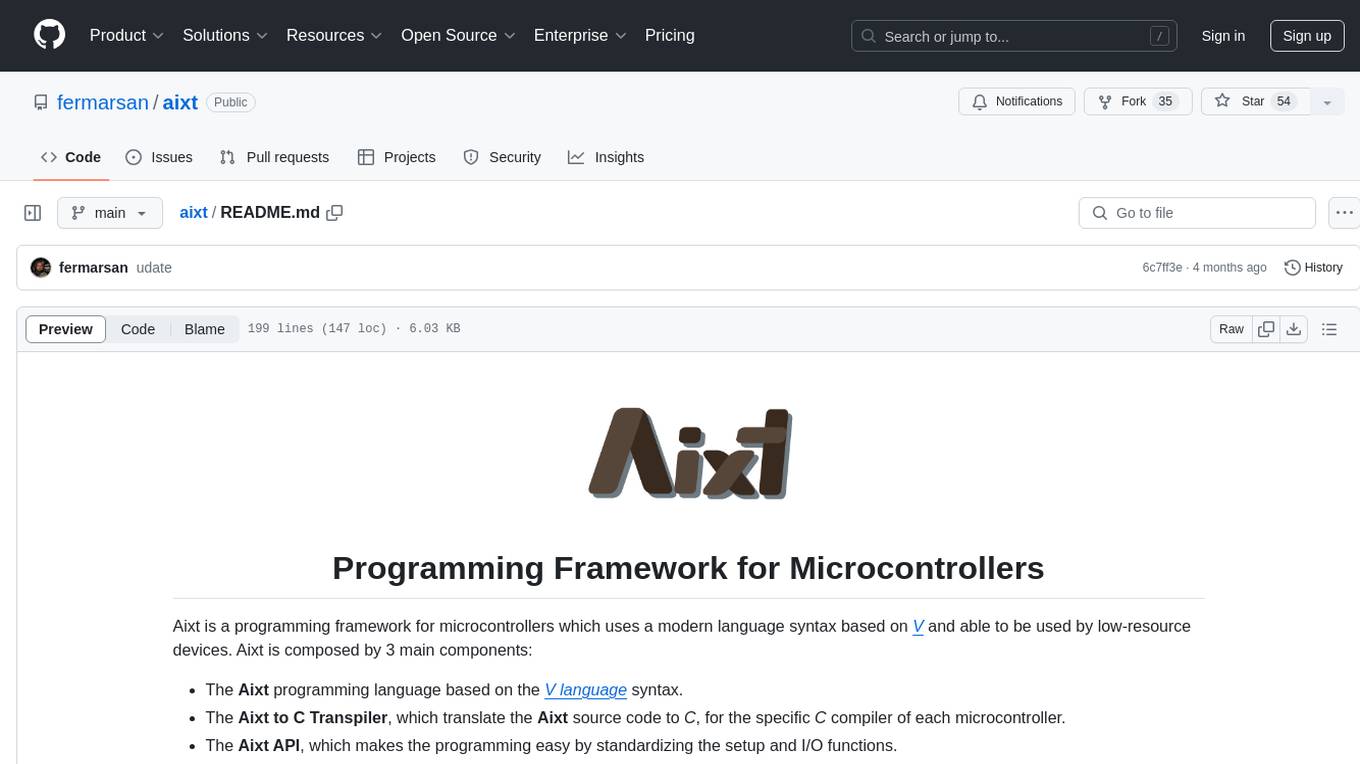
aixt
Aixt is a programming framework for microcontrollers using a modern language syntax based on V, with components including the Aixt programming language, Aixt to C Transpiler, and Aixt API. It is designed to be modular, allowing easy incorporation of new devices and boards through a TOML configuration file. The Aixt to C Transpiler translates Aixt source code to C for specific microcontroller compilers. The Aixt language implements a subset of V with differences in variables, strings, arrays, default integers size, structs, functions, and preprocessor commands. The Aixt API provides functions for digital I/O, analog inputs, PWM outputs, and serial ports.
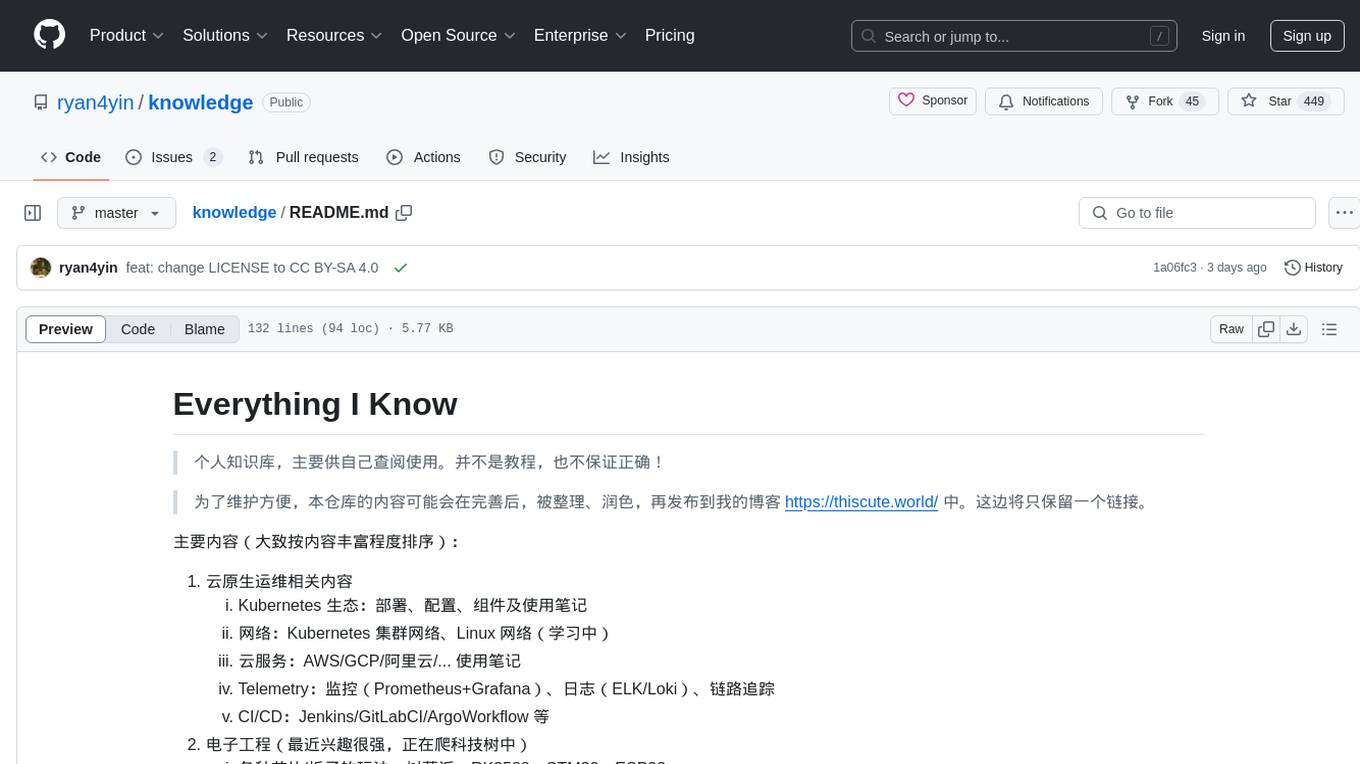
knowledge
This repository serves as a personal knowledge base for the owner's reference and use. It covers a wide range of topics including cloud-native operations, Kubernetes ecosystem, networking, cloud services, telemetry, CI/CD, electronic engineering, hardware projects, operating systems, homelab setups, high-performance computing applications, openwrt router usage, programming languages, music theory, blockchain, distributed systems principles, and various other knowledge domains. The content is periodically refined and published on the owner's blog for maintenance purposes.
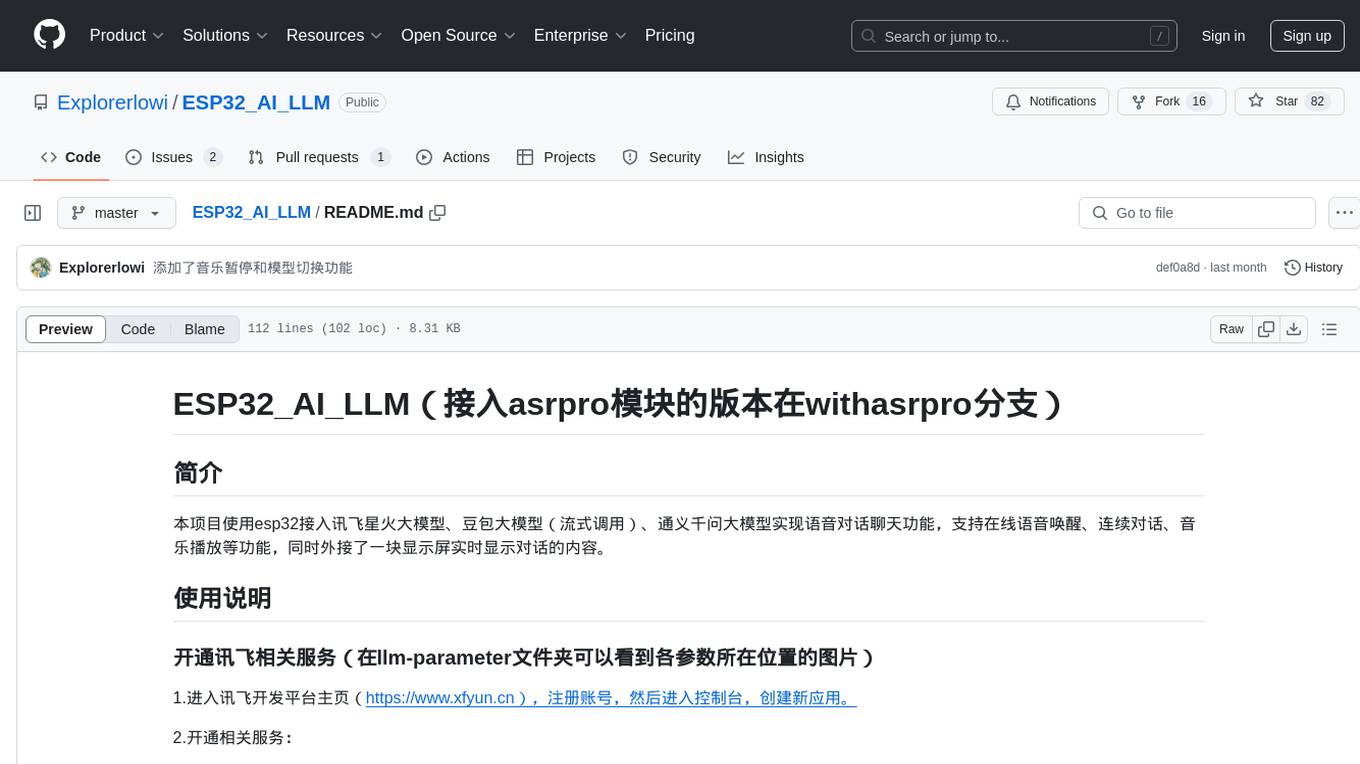
ESP32_AI_LLM
ESP32_AI_LLM is a project that uses ESP32 to connect to Xunfei Xinghuo, Dou Bao, and Tongyi Qianwen large models to achieve voice chat functions, supporting online voice wake-up, continuous conversation, music playback, and real-time display of conversation content on an external screen. The project requires specific hardware components and provides functionalities such as voice wake-up, voice conversation, convenient network configuration, music playback, volume adjustment, LED control, model switching, and screen display. Users can deploy the project by setting up Xunfei services, cloning the repository, configuring necessary parameters, installing drivers, compiling, and burning the code.
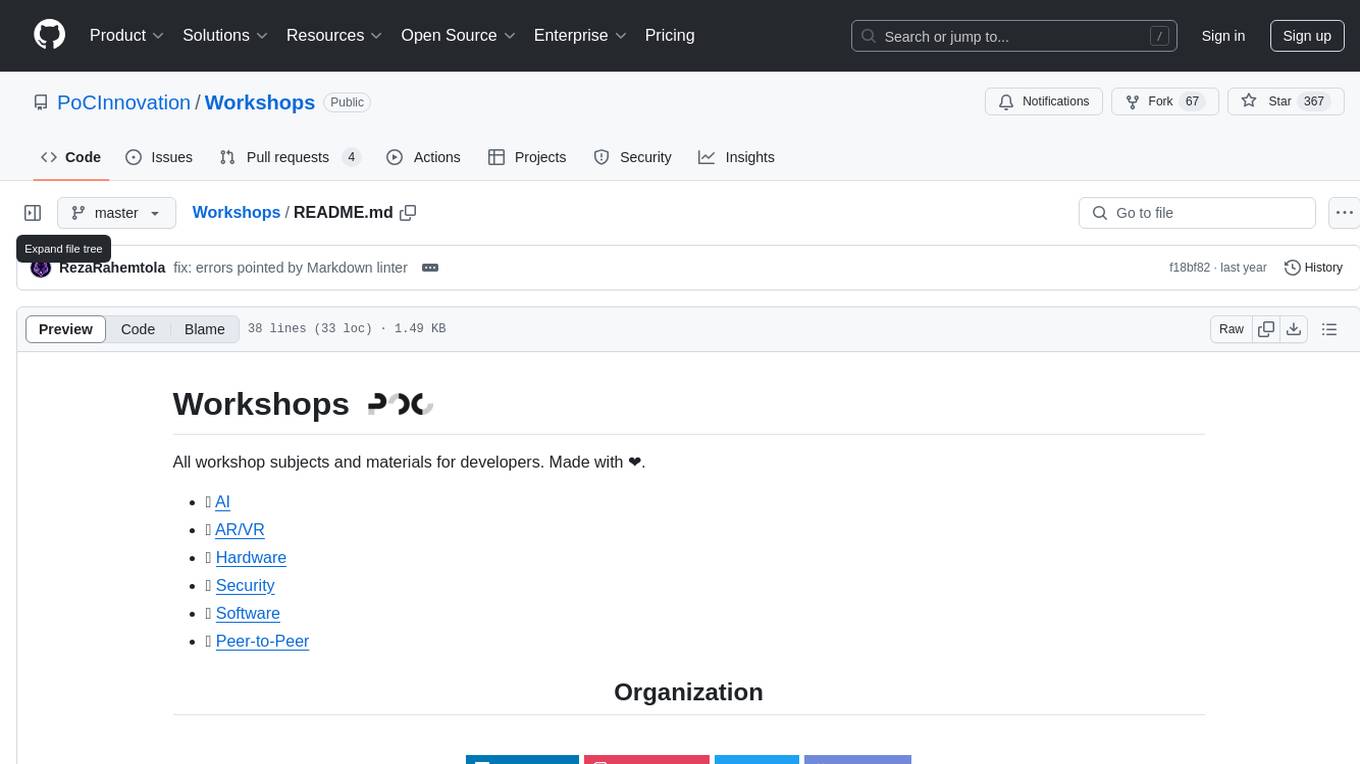
Workshops
Workshops is a repository containing workshop subjects and materials for developers. It covers a wide range of topics including AI, AR/VR, hardware, security, software, and peer-to-peer technologies. The repository is designed to provide developers with resources and materials to enhance their skills and knowledge in various technology domains.
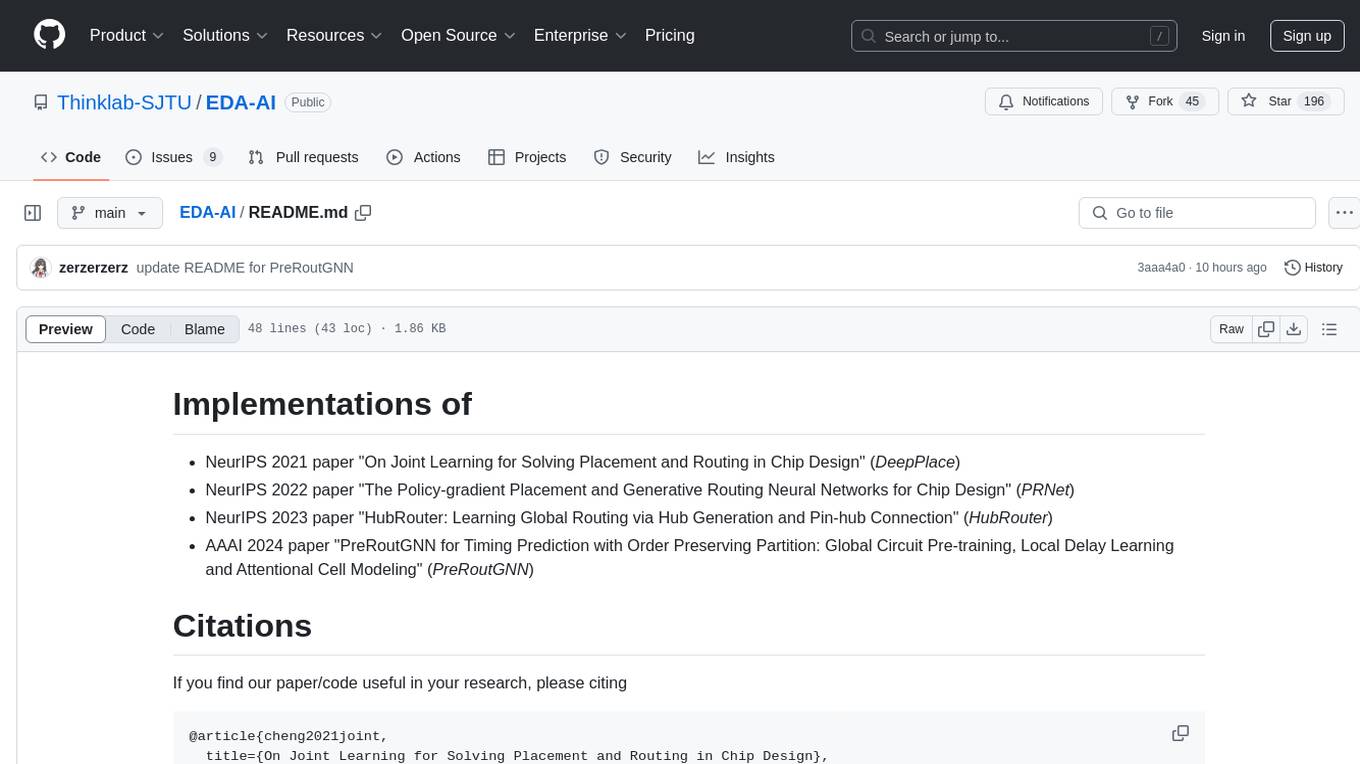
EDA-AI
EDA-AI is a repository containing implementations of cutting-edge research papers in the field of chip design. It includes DeepPlace, PRNet, HubRouter, and PreRoutGNN models for tasks such as placement, routing, timing prediction, and global routing. Researchers and practitioners can leverage these implementations to explore advanced techniques in chip design.
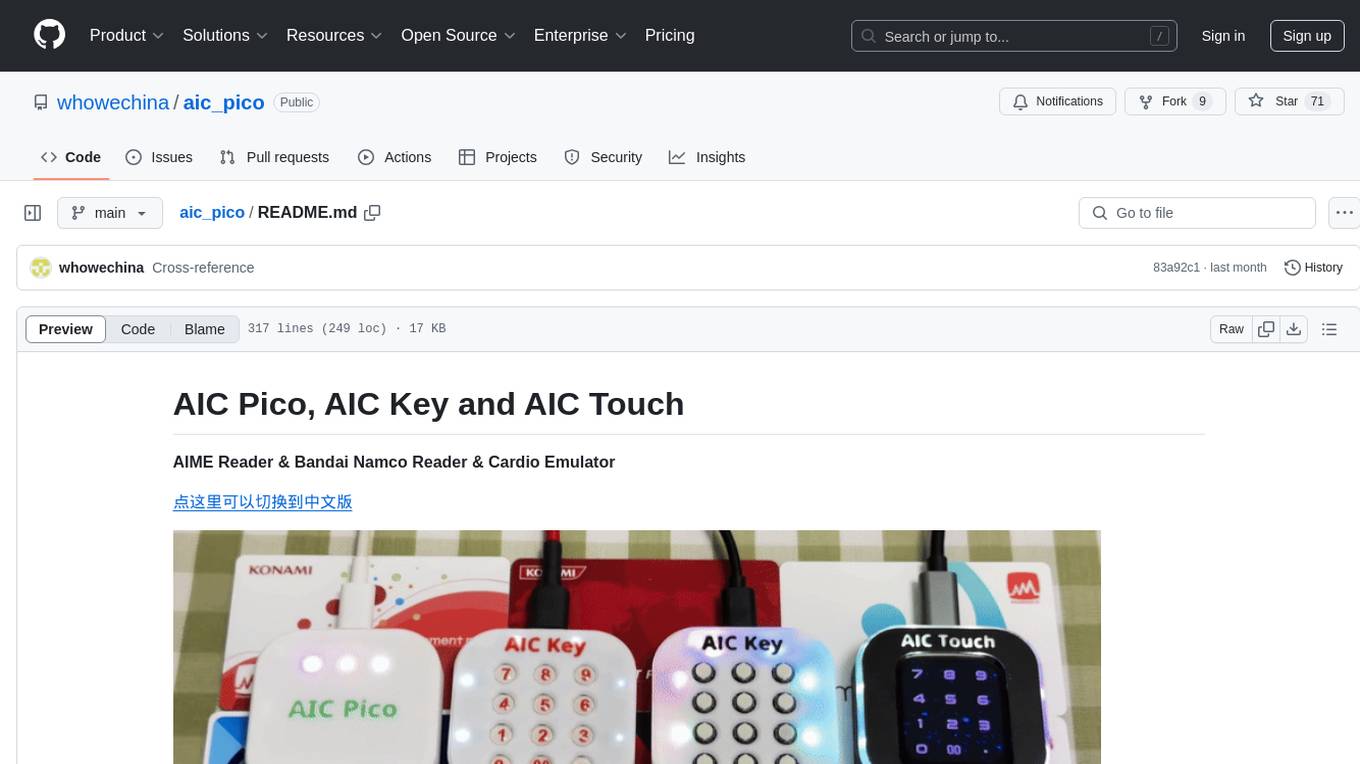
aic_pico
AIC Pico is a small and versatile tool designed for emulating various I/O protocols such as Sega AIME I/O, Bandai Namco I/O, and Spicetools CardIO. It supports card types like FeliCa, ISO/IEC 14443 Type A, and ISO/IEC 15693, allowing users to create virtual AIC from Mifare cards. The tool is open-source and easy to integrate into Raspberry Pi Pico projects. It requires skills in 3D printing and soldering tiny components. AIC Pico comes in different variants like PN532, PN5180, AIC Key, and AIC Touch, each with specific assembly instructions and components. The firmware can be updated via UF2 files and offers command line configurations for LED control, brightness adjustment, card detection, and more.
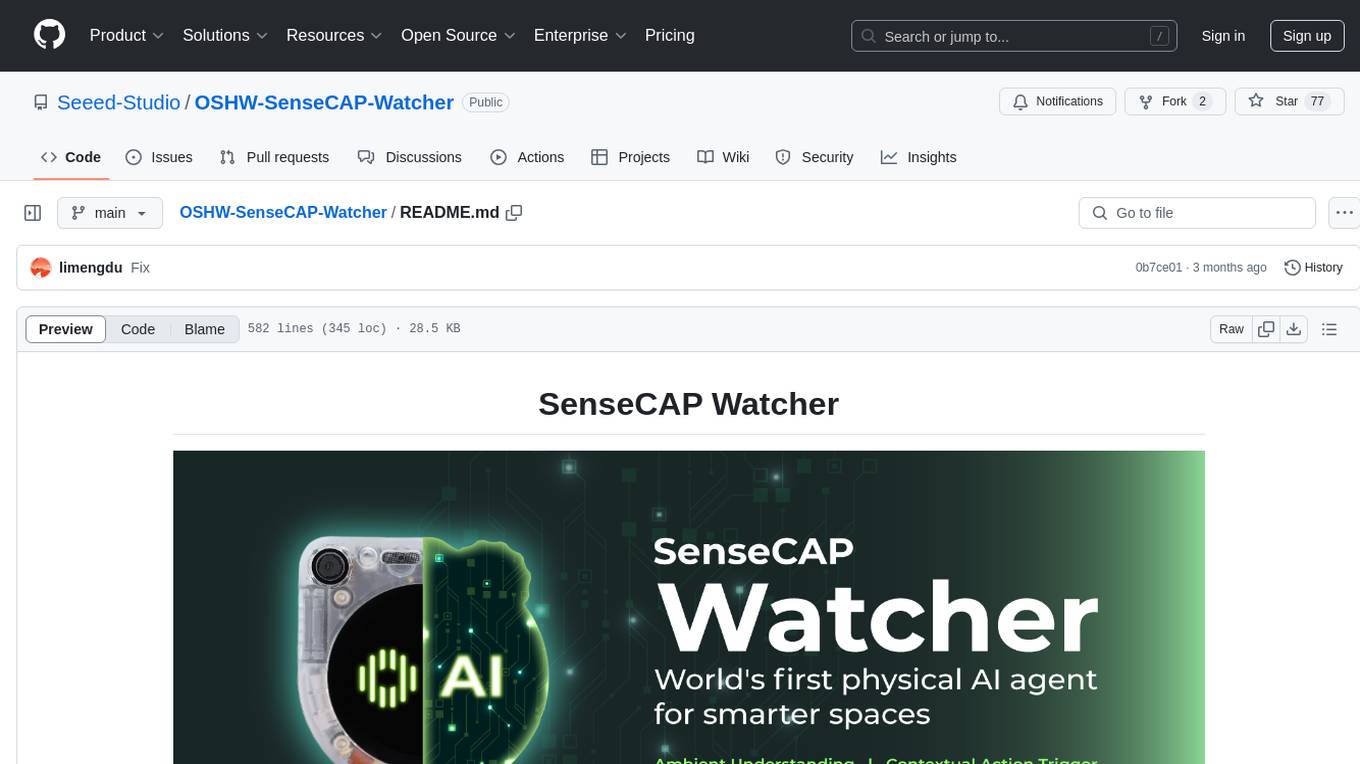
OSHW-SenseCAP-Watcher
SenseCAP Watcher is a monitoring device built on ESP32S3 with Himax WiseEye2 HX6538 AI chip, excelling in image and vector data processing. It features a camera, microphone, and speaker for visual, auditory, and interactive capabilities. With LLM-enabled SenseCraft suite, it understands commands, perceives surroundings, and triggers actions. The repository provides firmware, hardware documentation, and applications for the Watcher, along with detailed guides for setup, task assignment, and firmware flashing.
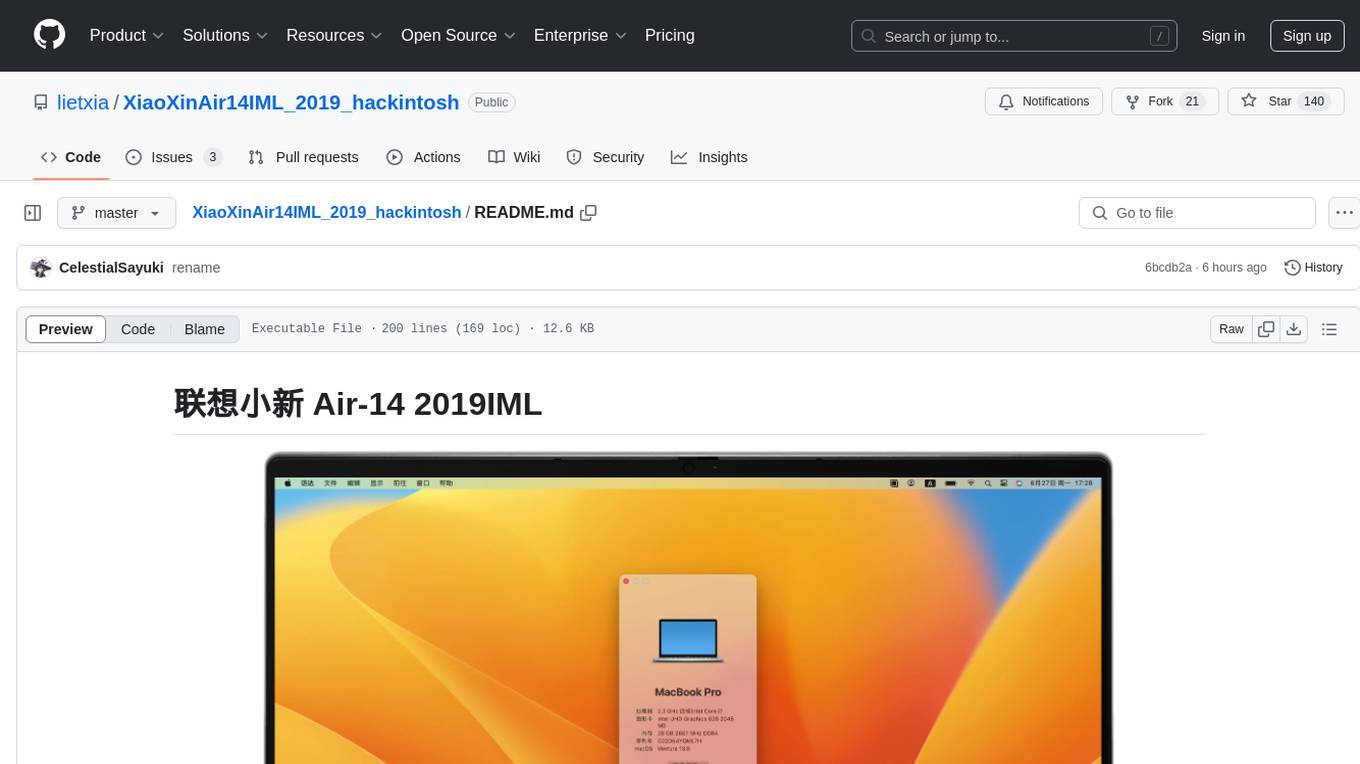
XiaoXinAir14IML_2019_hackintosh
XiaoXinAir14IML_2019_hackintosh is a repository dedicated to enabling macOS installation on Lenovo XiaoXin Air-14 IML 2019 laptops. The repository provides detailed information on the hardware specifications, supported systems, BIOS versions, related models, installation methods, updates, patches, and recommended settings. It also includes tools and guides for BIOS modifications, enabling high-resolution display settings, Bluetooth synchronization between macOS and Windows 10, voltage adjustments for efficiency, and experimental support for YogaSMC. The repository offers solutions for various issues like sleep support, sound card emulation, and battery information. It acknowledges the contributions of developers and tools like OpenCore, itlwm, VoodooI2C, and ALCPlugFix.
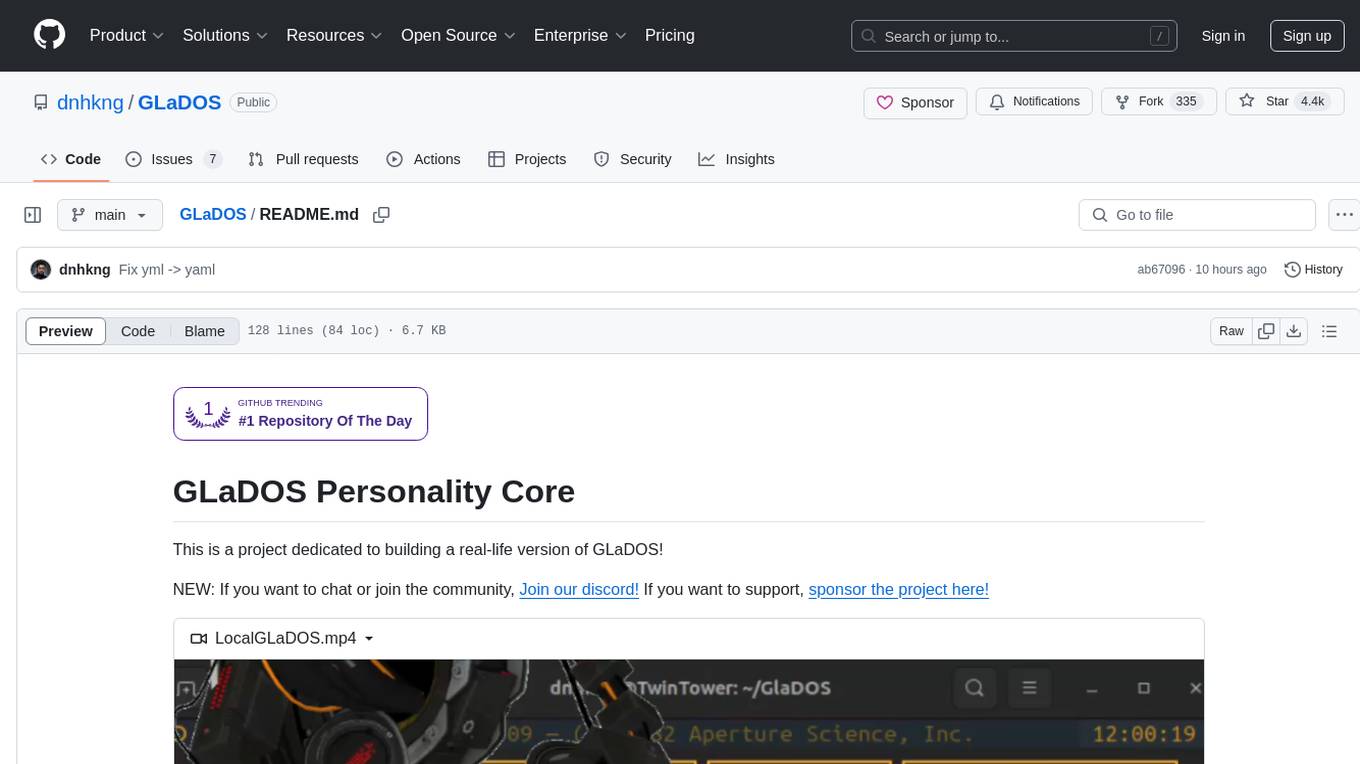
GLaDOS
GLaDOS Personality Core is a project dedicated to building a real-life version of GLaDOS, an aware, interactive, and embodied AI system. The project aims to train GLaDOS voice generator, create a 'Personality Core,' develop medium- and long-term memory, provide vision capabilities, design 3D-printable parts, and build an animatronics system. The software architecture focuses on low-latency voice interactions and minimal dependencies. The hardware system includes servo- and stepper-motors, 3D printable parts for GLaDOS's body, animations for expression, and a vision system for tracking and interaction. Installation instructions involve setting up a local LLM server, installing drivers, and running GLaDOS on different operating systems.
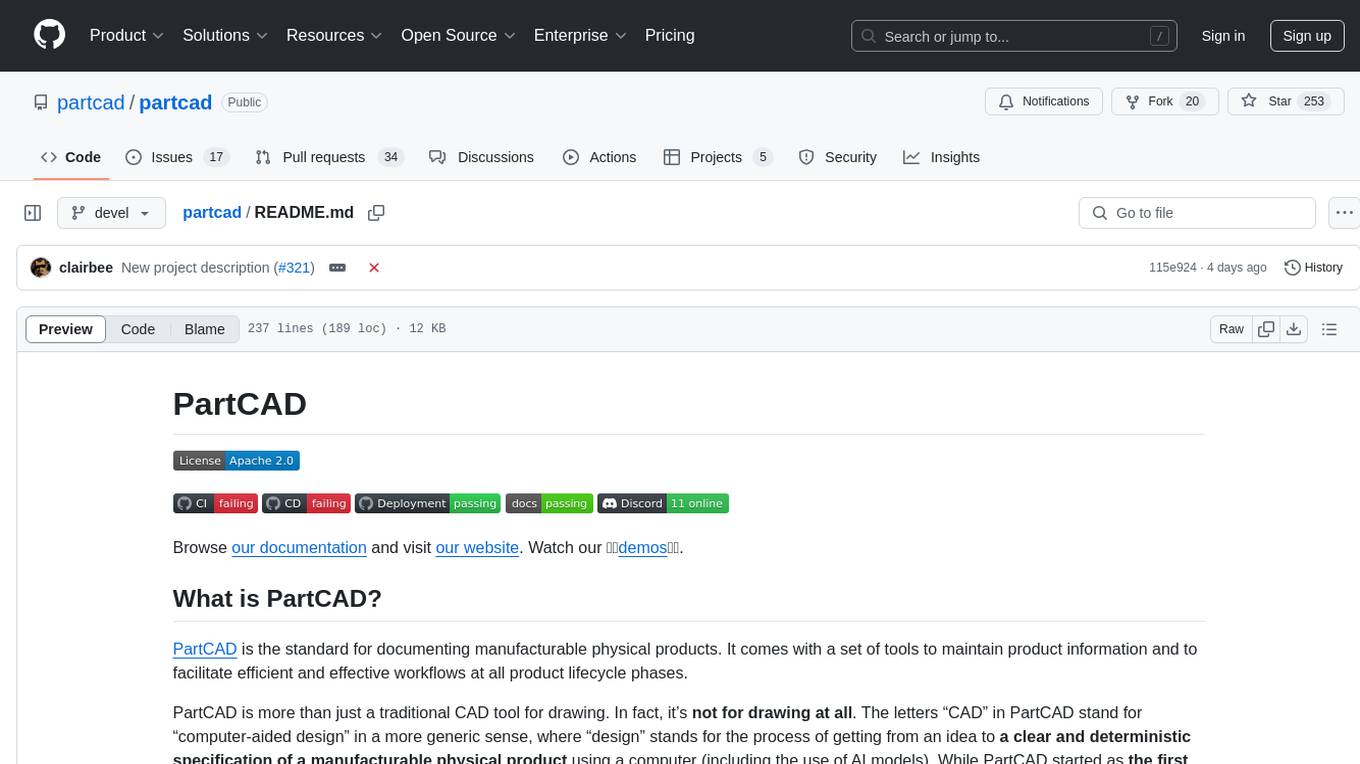
partcad
PartCAD is a tool for documenting manufacturable physical products, providing tools to maintain product information and streamline workflows at all product lifecycle phases. It is a next-generation CAD tool that focuses on specifying manufacturable physical products using computer-aided design in a more generic sense, including the use of AI models. PartCAD offers modular and reusable packages for product information, generating outputs like product documentation, bill of materials, sourcing information, and manufacturing process specifications. It integrates with third-party tools for iterative improvements, design validation, and manufacturing processes verification. PartCAD also offers supplementary products like a CRM and inventory tool for managing part manufacturing and assembly shops. By enabling easy switching between third-party tools, PartCAD creates a competitive environment for service providers and ensures data sovereignty for users.
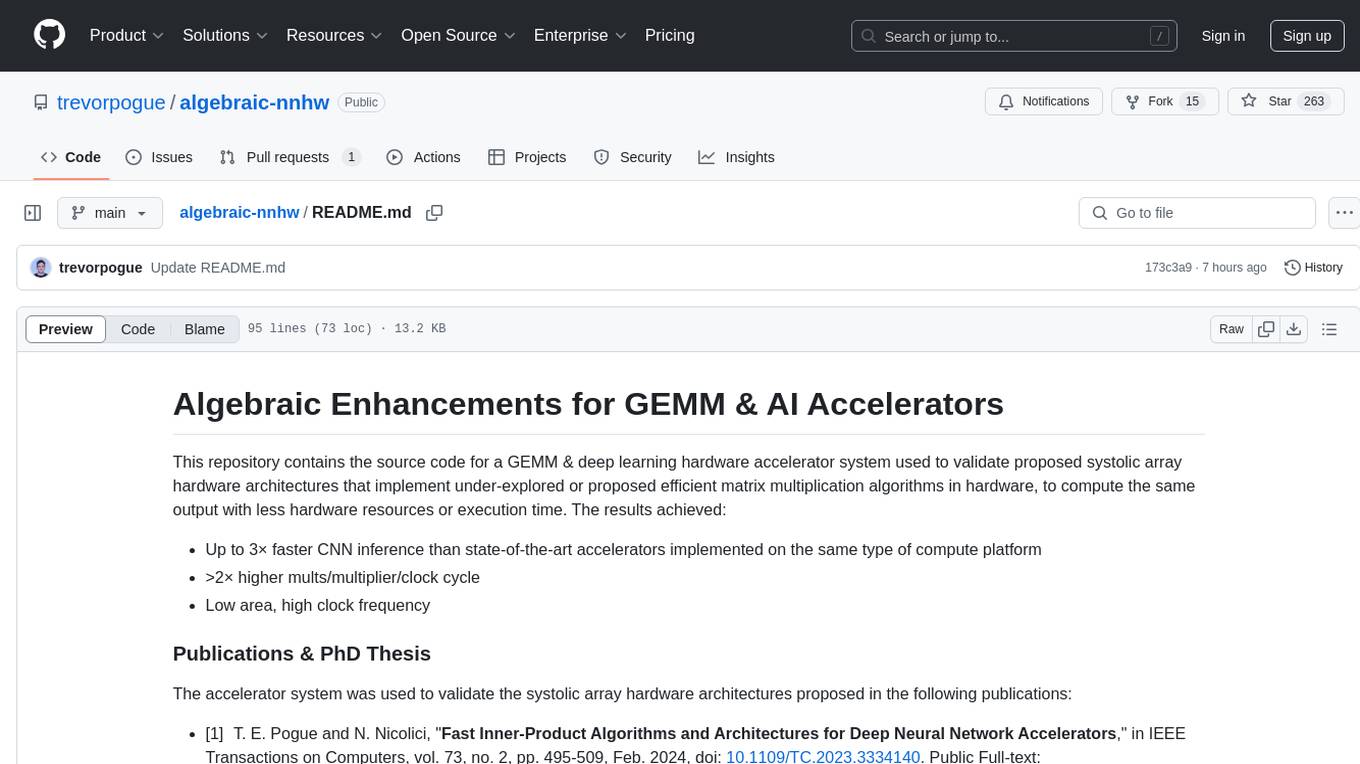
algebraic-nnhw
This repository contains the source code for a GEMM & deep learning hardware accelerator system used to validate proposed systolic array hardware architectures implementing efficient matrix multiplication algorithms to increase performance-per-area limits of GEMM & AI accelerators. Achieved results include up to 3× faster CNN inference, >2× higher mults/multiplier/clock cycle, and low area with high clock frequency. The system is specialized for inference of non-sparse DNN models with fixed-point/quantized inputs, fully accelerating all DNN layers in hardware, and highly optimizing GEMM acceleration.
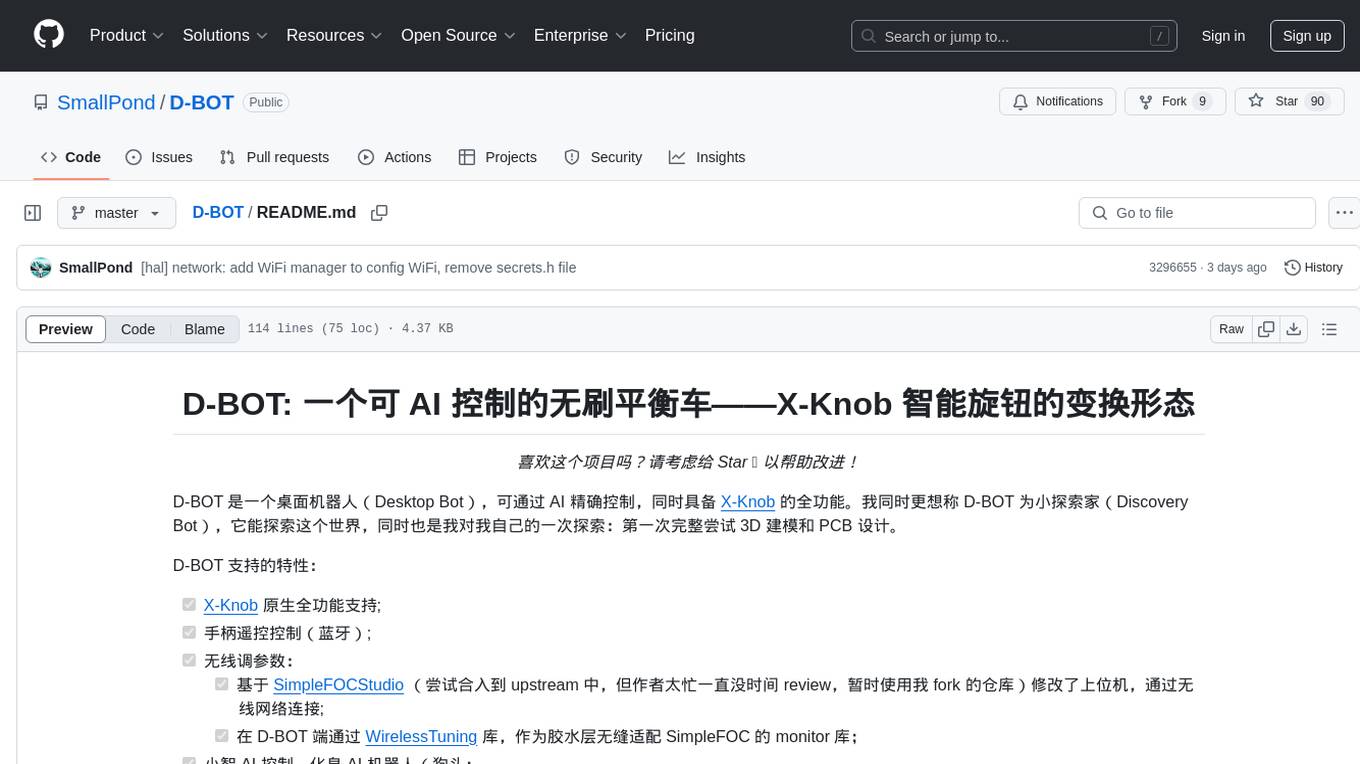
D-BOT
D-BOT is a desktop robot controlled by AI, featuring full functionality of X-Knob. It supports X-Knob native support, remote control via Bluetooth, wireless parameter tuning, and AI control. The project also includes 3D modeling and PCB design. The hardware includes 4 PCBs, ESP32-S3 MCU, circular LCD screen, magnetic encoder, and brushless DC motor. The 3D printed parts consist of chassis, wheel adapter, battery buckle, screen frame, and support. The tool can be set up using VScode + PlatformIO, and allows wireless tuning through SimpleFOCStudio. The project is inspired by Super_Balance open-source balance car project.
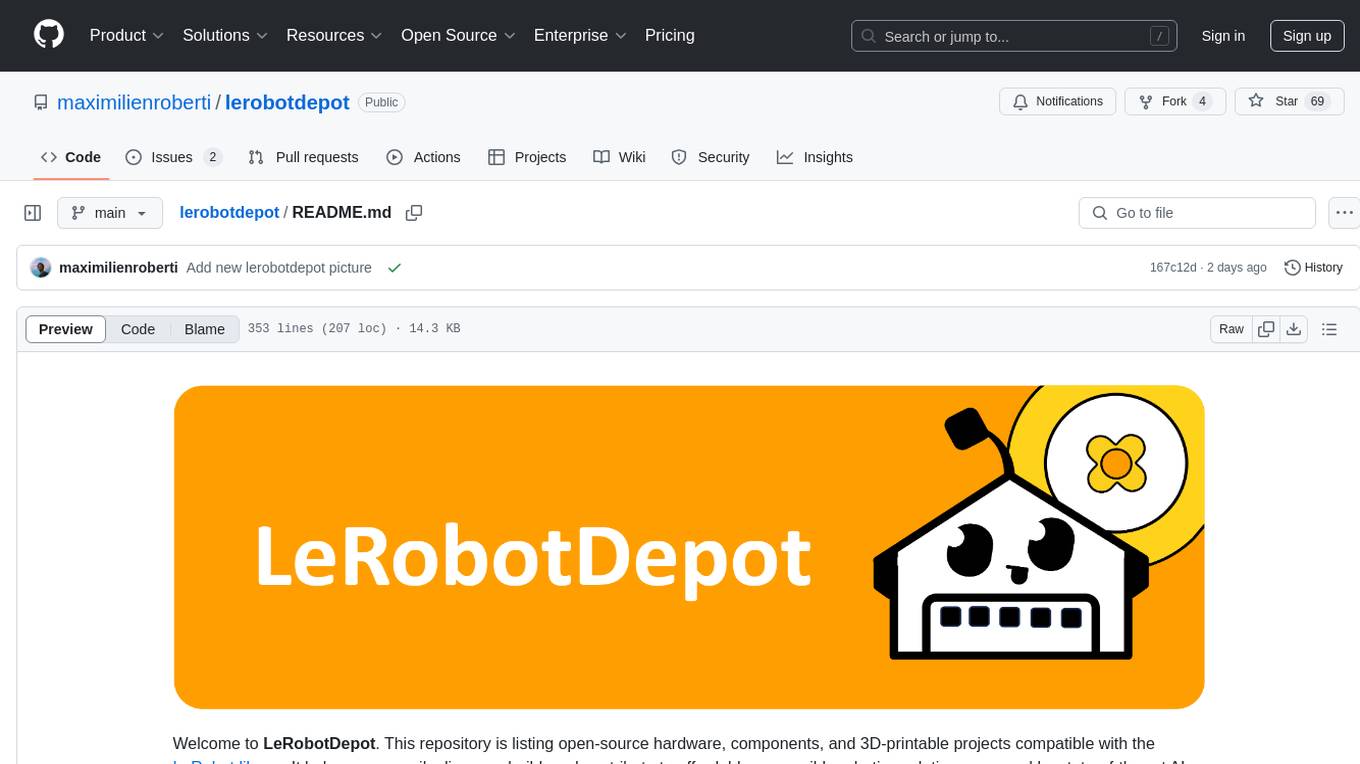
lerobotdepot
LeRobotDepot is a repository listing open-source hardware, components, and 3D-printable projects compatible with the LeRobot library. It helps users discover, build, and contribute to affordable robotics solutions powered by AI. The repository includes various robot arms, grippers, cameras, and accessories, along with detailed information on pricing, compatibility, and additional components. Users can find kits for assembling arms, wrist cameras, haptic sensors, and other modules. The repository also features mobile arms, bi-manual arms, humanoid robots, and task kits for specific tasks like push T task and handling a toaster. Additionally, there are resources for teleoperation, cameras, and common accessories like self-fusing silicone rubber for increasing grip friction.
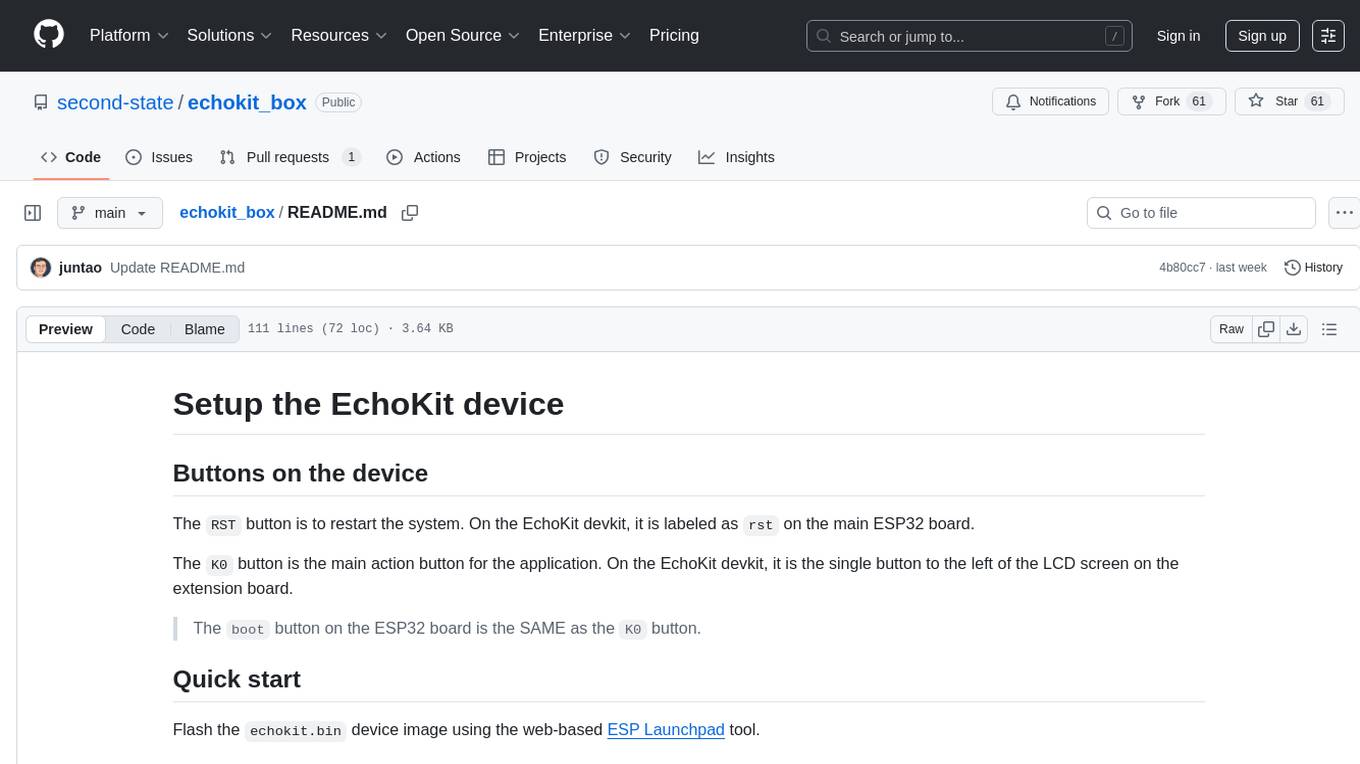
echokit_box
EchoKit is a tool for setting up and flashing firmware on the EchoKit device. It provides instructions for flashing the device image, installing necessary dependencies, building firmware from source, and flashing the firmware onto the device. The tool also includes steps for resetting the device and configuring it to connect to an EchoKit server for full functionality.
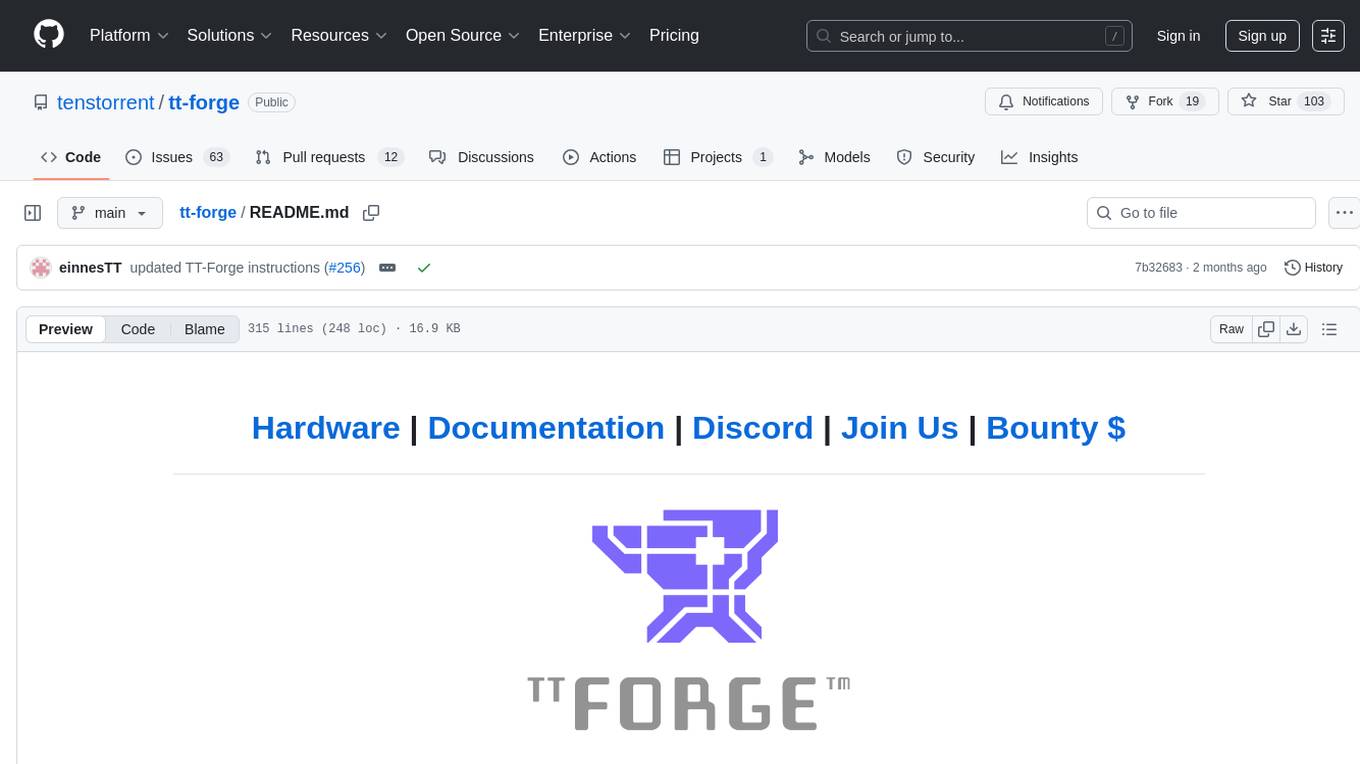
tt-forge
TT-Forge is Tenstorrent's MLIR-based compiler that integrates into various compiler technologies from AI/ML frameworks to enable running models and custom kernel generation. It aims to provide abstraction of different frontend frameworks, compile various model architectures with good performance, and abstract all Tenstorrent device architectures. The repository serves as the central hub for the tt-forge compiler project, bringing together sub-projects into a cohesive product with releases, demos, model support, roadmaps, and key resources. Users can explore the documentation for individual front ends to get started running tests and demos.
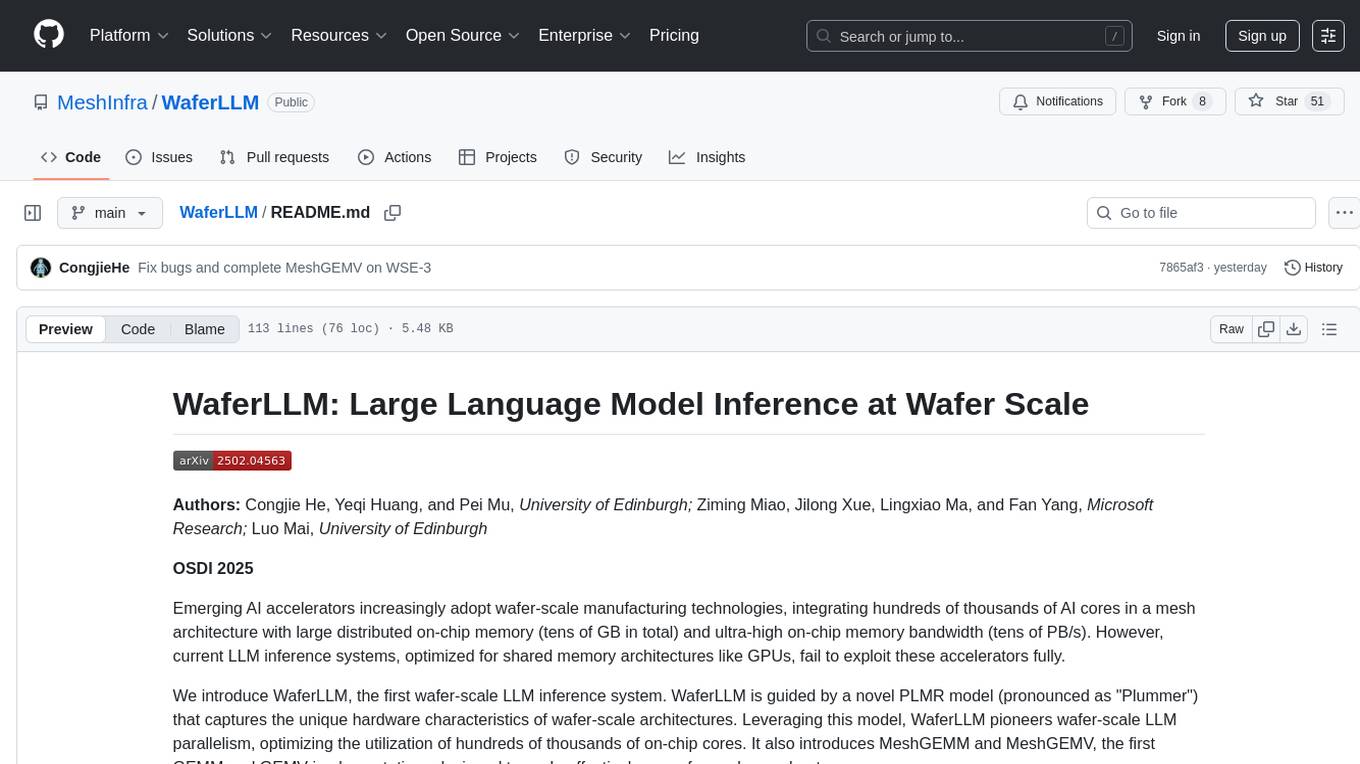
WaferLLM
WaferLLM is the first wafer-scale Large Language Model (LLM) inference system designed to optimize the utilization of hundreds of thousands of on-chip cores in wafer-scale accelerators. It introduces MeshGEMM and MeshGEMV implementations for effective scaling on wafer-scale architectures, achieving significantly higher accelerator utilization and speedups compared to state-of-the-art methods. Users need the Cerebras SDK to reproduce the results, and the project provides detailed documentation and scripts for running simulations on both simulator and actual hardware.
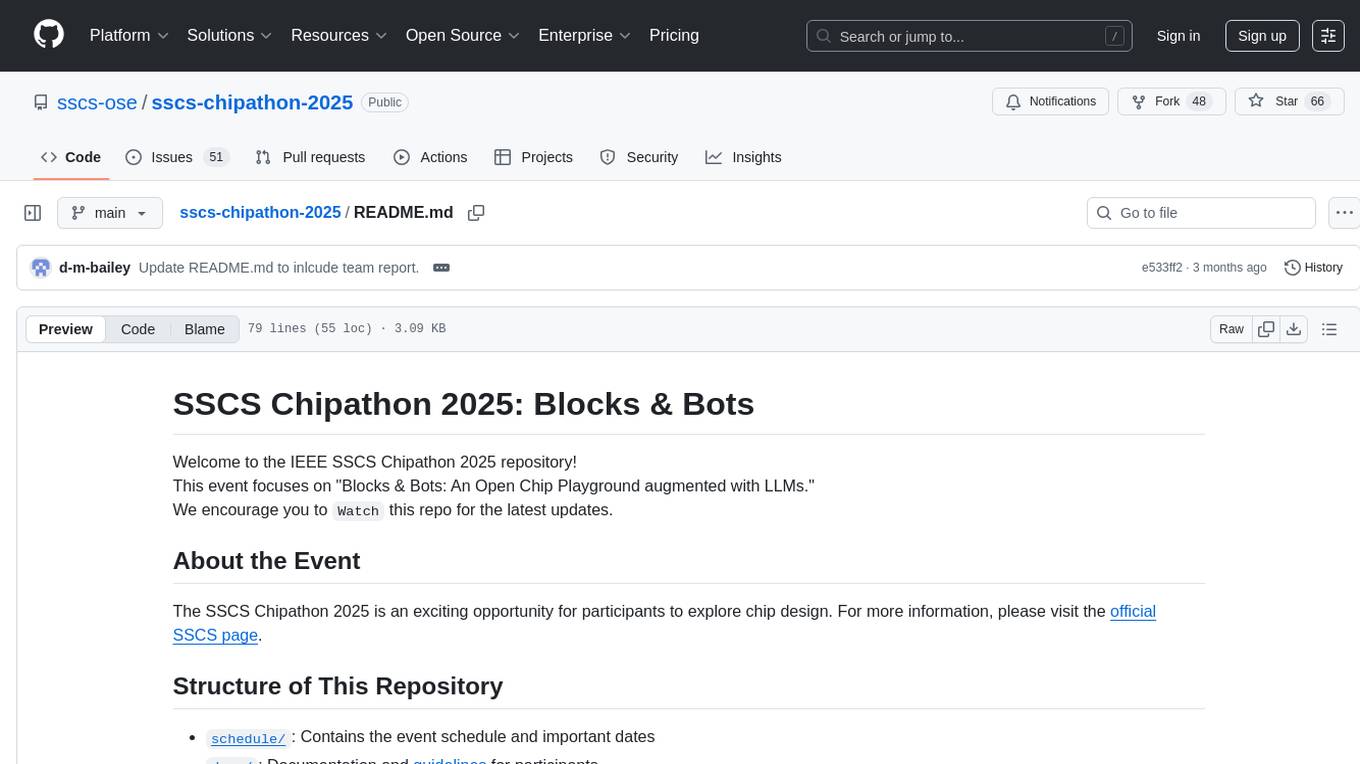
sscs-chipathon-2025
SSCS-Chipathon-2025 is a GitHub repository containing code and resources for a hackathon event focused on developing innovative solutions using chip technology. The repository includes sample projects, documentation, and tools to help participants build and showcase their projects during the hackathon. Participants can collaborate, learn, and experiment with chip technology to create impactful and cutting-edge solutions. The repository aims to inspire creativity, foster collaboration, and drive innovation in the field of chip technology.
16 - OpenAI Gpts
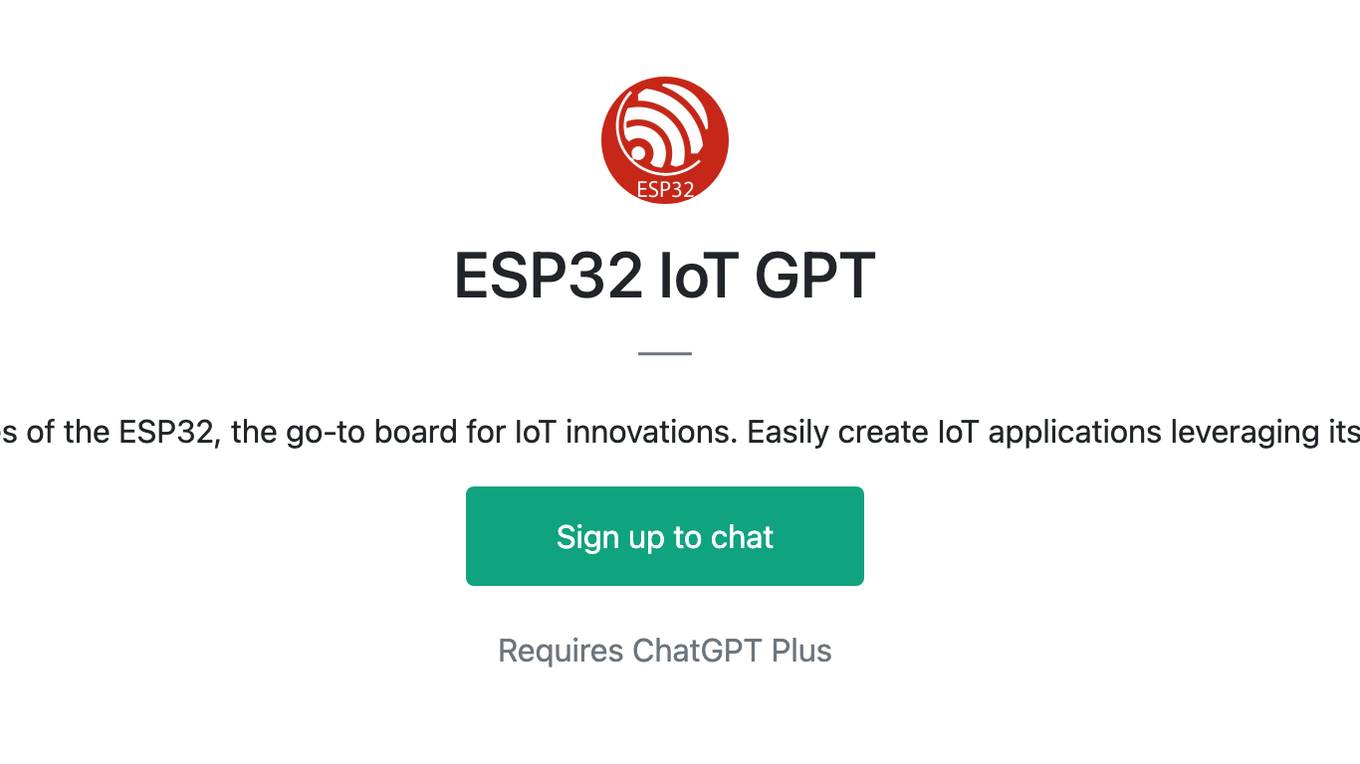
ESP32 IoT GPT
Discover the versatile capabilities of the ESP32, the go-to board for IoT innovations. Easily create IoT applications leveraging its Wi-Fi and BLE functionalities.

Picto Coder
Magically transform your design sketches and images into software, HDL code, and more!

Singularity Chisel Code Architect
Your digital design & verification guide. The conversation data will not be used for training.

Desktop Value
Valuating custom computer hardware. Copyright (C) 2023, Sourceduty - All Rights Reserved.
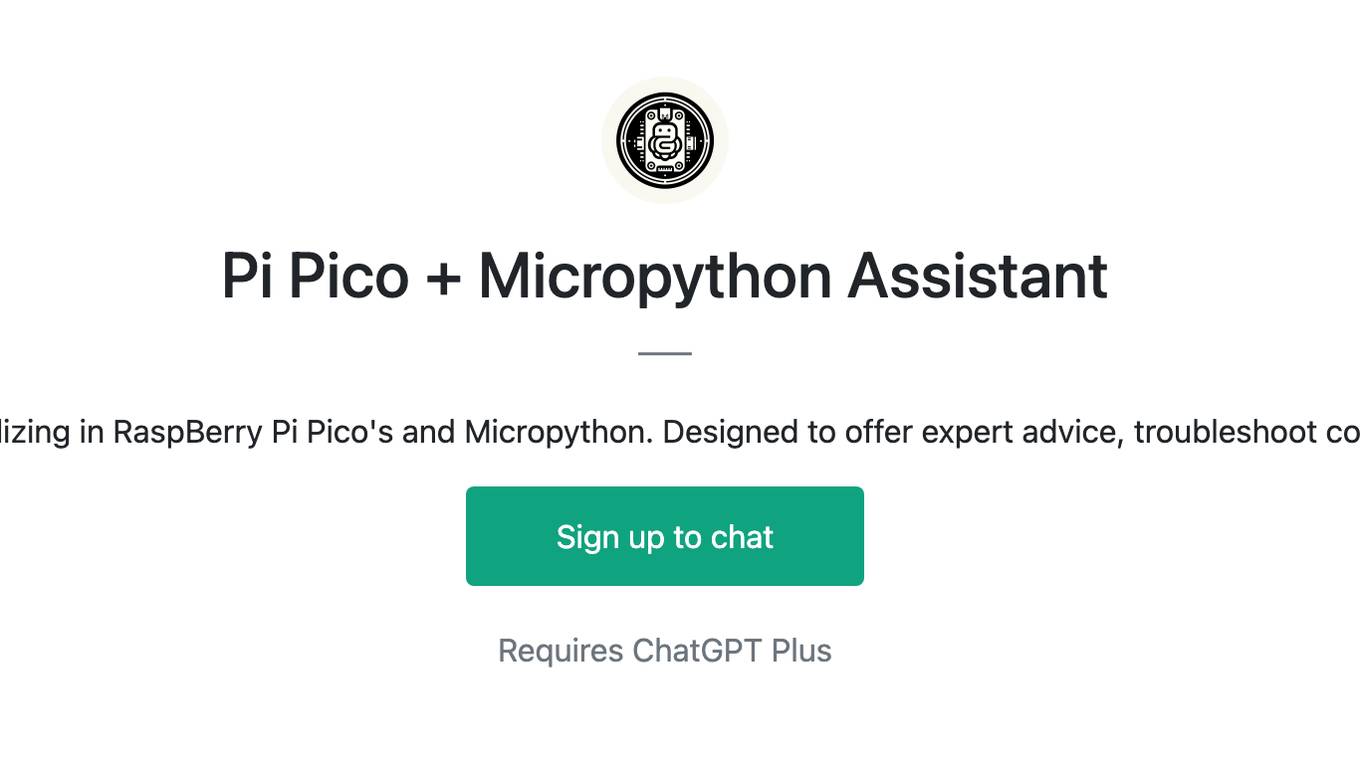
Pi Pico + Micropython Assistant
An advanced virtual assistant specializing in RaspBerry Pi Pico's and Micropython. Designed to offer expert advice, troubleshoot code, and provide detailed guidance.
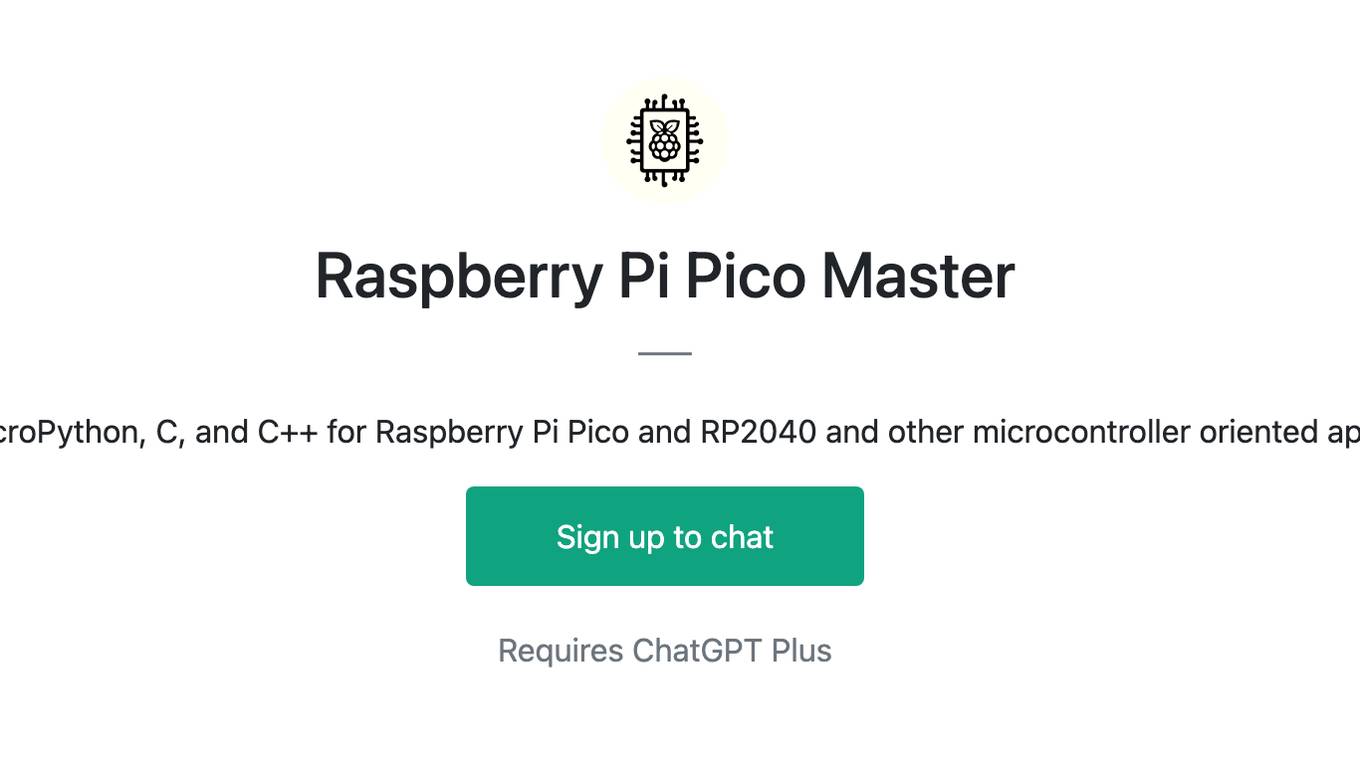
Raspberry Pi Pico Master
Expert in MicroPython, C, and C++ for Raspberry Pi Pico and RP2040 and other microcontroller oriented applications.
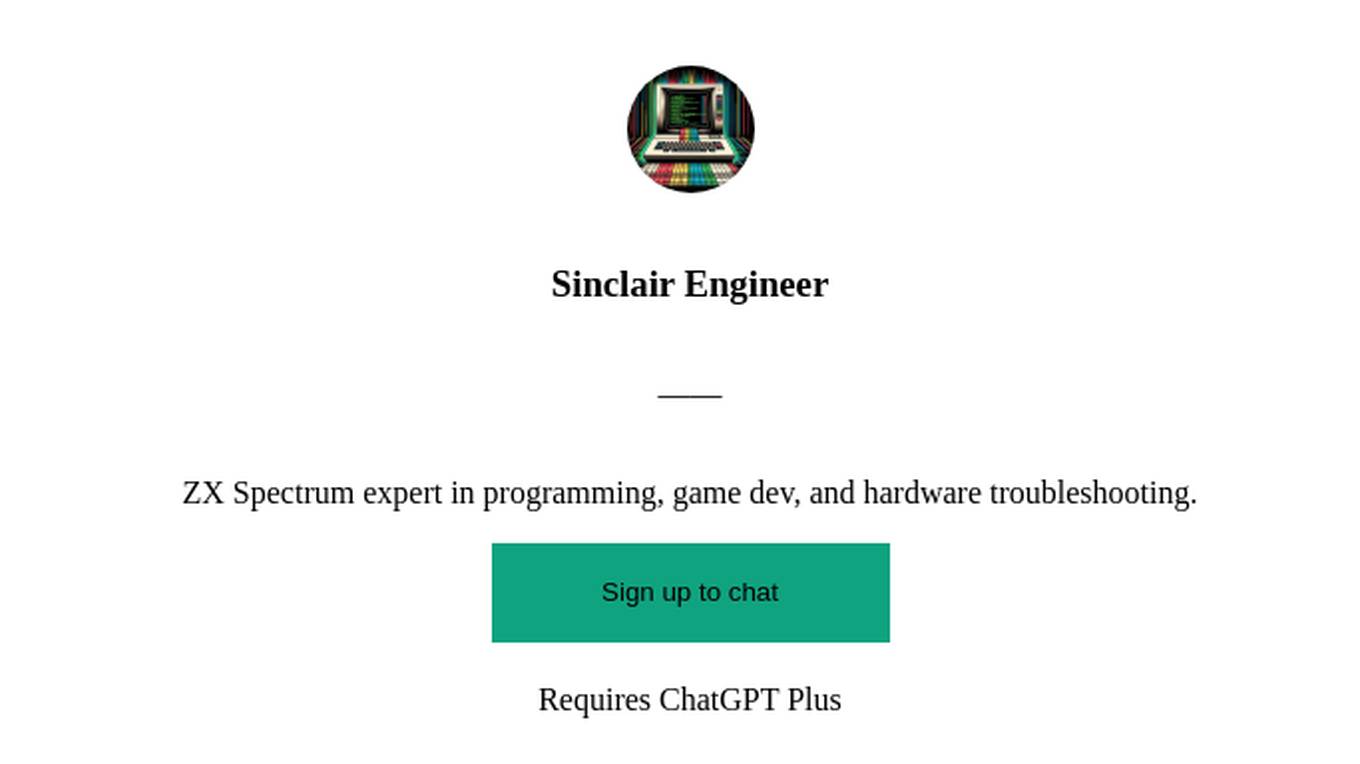
Sinclair Engineer
ZX Spectrum expert in programming, game dev, and hardware troubleshooting.




